




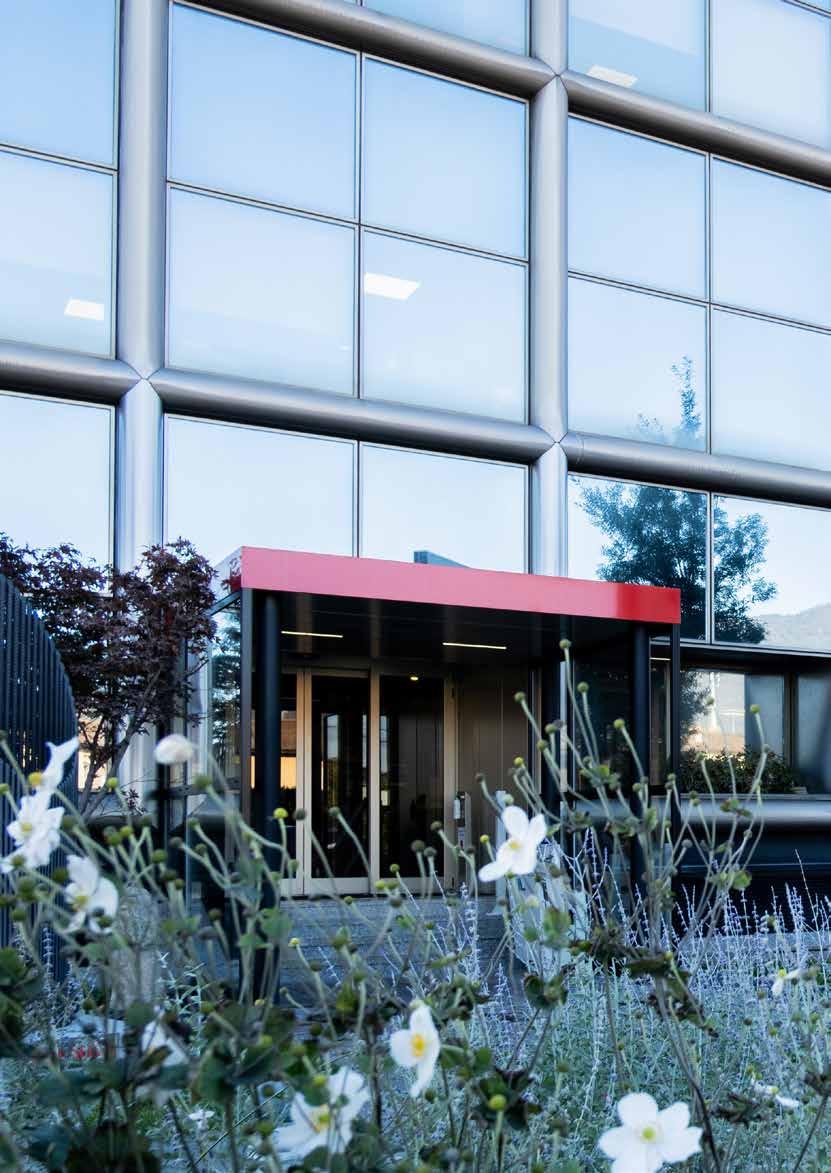
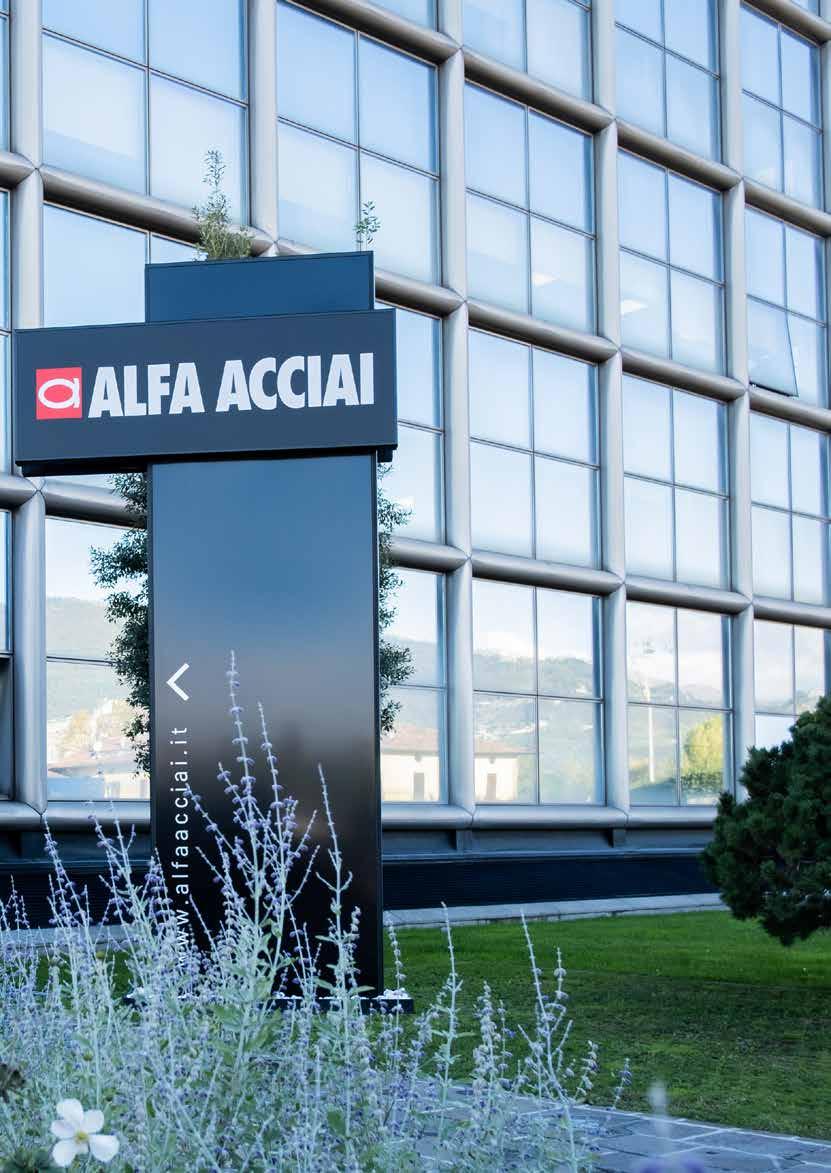








In recent years, the sustainability report has become increasingly popular at home and abroad as a voluntary corporate communication tool for both internal and external use, providing a broad, accepted representation of economic, social and environmental performance in terms of their sustainability.
We have happily started to use this 'mode of communication' at Group level with the support of leading external experts, as our heartfelt desire is to be transparent and engage with our stakeholders.
The topic of sustainability is undoubtedly in our DNA and we will endeavour to express it herein through the required international standards, in addition to the European indicators defined by SustSteel certification, which we've held for our products for some time.
Electric steelmaking, i.e., the production of steel from an electric arc furnace, is circular and renewable by nature, since used steel (ferrous scrap) can be recycled indefinitely into new steel. However, we must emphasise how much this raw material of ours is scarce in Italy, as we do not yet have effective borders, and retaining it in Europe should be a priority for European industrial policy.
Sustainability is our main commitment due to the scale of our achievements. A strong sense of social responsibility is essential for differentiating ourselves with all of our stakeholders, also considering that we are at the start of an essential national supply chain, such as the construction industry, and also supply drawn products with their numerous applications.
In practice, environmental, social and economic sustainability permeates all of our tasks and strategies, be it new investment or procedural change, because it has always been in our corporate culture, and guaranteed by a stable shareholder base and professional management team, and we thank everyone working in the group for having taken it on board.
Our unstinting commitment to sustainability, targeting coexistence between the company, the environment and the community is demonstrated first and foremost with evident financial stability, smooth engagement with environmental organisations, continuous monitoring and the creation of the Alfa Acciai Observatory in 2007, and also by an increasing number of new hires and limited staff turnover, low number of accidents in the workplace, and the quality of our products, which ensures that we have a major presence on markets.
Consequently, the search for maximum efficiency and competitiveness was our guiding principle in the years following the 2008 recession, given the slow recovery of the market, but 2020 was drastically marked by the spread of the COVID pandemic. This meant we reacted and became even more responsible by voluntarily deciding, the first in Brescia and among the first in Italy, to suspend operations, guaranteeing maximum safety in the workplace and avoiding outbreaks at different sites, while mindful of the economic impact, demonstrating the dynamism of our sustainability, where the health and safety of our employees remains one of our priorities.
On the environmental front, investment in energy transition will continue in the coming years, the set target being to achieve a 10-15% reduction in energy consumption at Alfa Acciai in 2024 and introduce an important share of renewable sources, thanks for example to the recovery of heat transferred to the district heating network of the city of Brescia. This will be in addition to the ongoing improvement of our environmental standards aimed at reducing consumption and emissions, optimising the management of available resources, and making the most of waste and by-products.
As leading national players with a solid international reputation, we hope that by reading this report our commitment to sustainability is appreciated not only by our numerous, well-established customers, suppliers and closest stakeholders, but also by a wider, less industry-specific audience we would like to engage with, ever more beneficially, in the future. "Sustainable development is the irreversible path that the Italian steel industry has chosen", stated the chairman of the Italian steel association, Federacciai, in the 2019 sustainability report, and here in this report, we are sharing with our stakeholders the extent to which our business is important for the creation of value, social cohesion in the area, and safeguarding a collective asset.
Heartened by having laid solid foundations for tackling the demanding challenges in our industry, we hope you find that this report makes interesting reading.
Ettore Lonati Chairman

Amato Stabiumi Chief Executive Officer

This document is the Alfa Acciai Group's first sustainability report, and it has been produced to inform all internal and external stakeholders of the Group's achievements in relation to sustainability and to outline future targets to be pursued.
For the communication purposes of this document, the Alfa Acciai Group includes the parent company Alfa Acciai S.p.A. and its operating subsidiaries Alfa Derivati S.r.l., Acciaierie di Sicilia S.p.A., Tecnofil S.p.A. and Ferro Berica S.r.l. (hereinafter Ferroberica), with the exclusion of non-operating companies as they work in the real estate business.
The information and figures provided in this report relate to financial years 2019 and 2020 (01 January31 December). Despite it being the first sustainability report, the Group has decided to cover a two-year period to enable figures to be compared appropriately and to show data trends, although conditioned by Covid-19 pandemic.
The Sustainability Report was drawn up in line with the GRI Standards published in 2016 by the Global Reporting Initiative (GRI) as per the Core option. With regard to Occupational Health and Safety (GRI 403), Tax (GRI 207) and Waste (GRI 306), the 2018, 2019 and 2020 versions were adopted. When preparing the document, the principles of materiality, inclusiveness, sustainability context, completeness, accuracy, balance, clarity, comparability, reliability and timeliness was applied.
In order to ensure data reliability and an accurate representation of performance, the use of estimates was limited as much as possible, and where this was necessary, they were calculated on the basis of the best available methods and reported in detail.
The 2020 conversion factors published by the UK's Department for Environment, Food and Rural Affairs (DEFRA) were used to represent energy consumption in GJ, as required by the GRI standards. With regard to the calculation of emissions, for direct emissions of CO₂eq (Scope 1) the 2020 and 2019 emission factors used are those published by DEFRA, except for emissions from natural gas consumption and carbon materials in companies covered by the EU-ETS emissions trading scheme (Alfa Acciai and Acciaierie di Sicilia), for which the ETS method has been adopted. Whereas, for the calculation of indirect emissions of CO₂eq (Scope 2), the electricity emission factor used is the value produced and published by the Association of Issuing Bodies (2018 and 2019) and available in the “Country specific electricity grid Greenhouse Gas emission factors” report for 2019 and 2020, respectively. Finally, direct measurements at emission points have been used to calculate other emissions, as can be found in the certificates of analysis.
For further clarification or information on the contents of this document, you can send an e-mail to the following address: infobds@alfaacciai.it
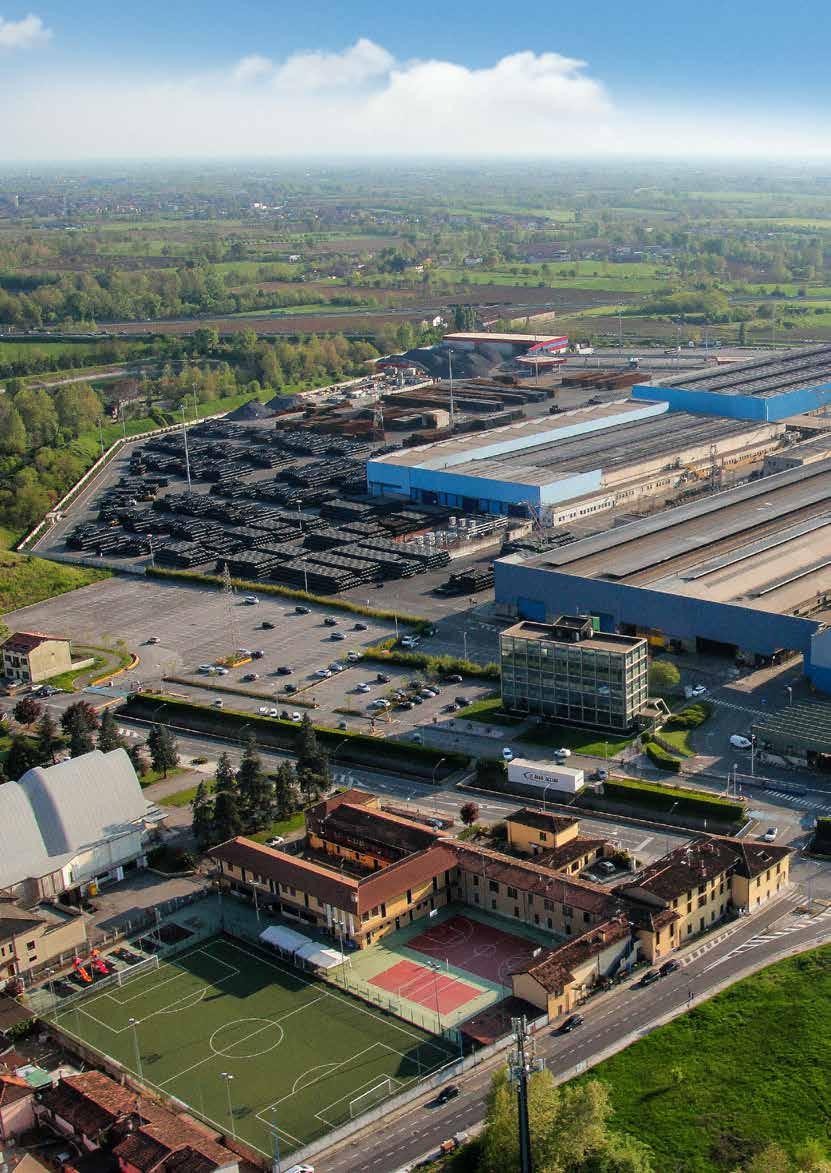
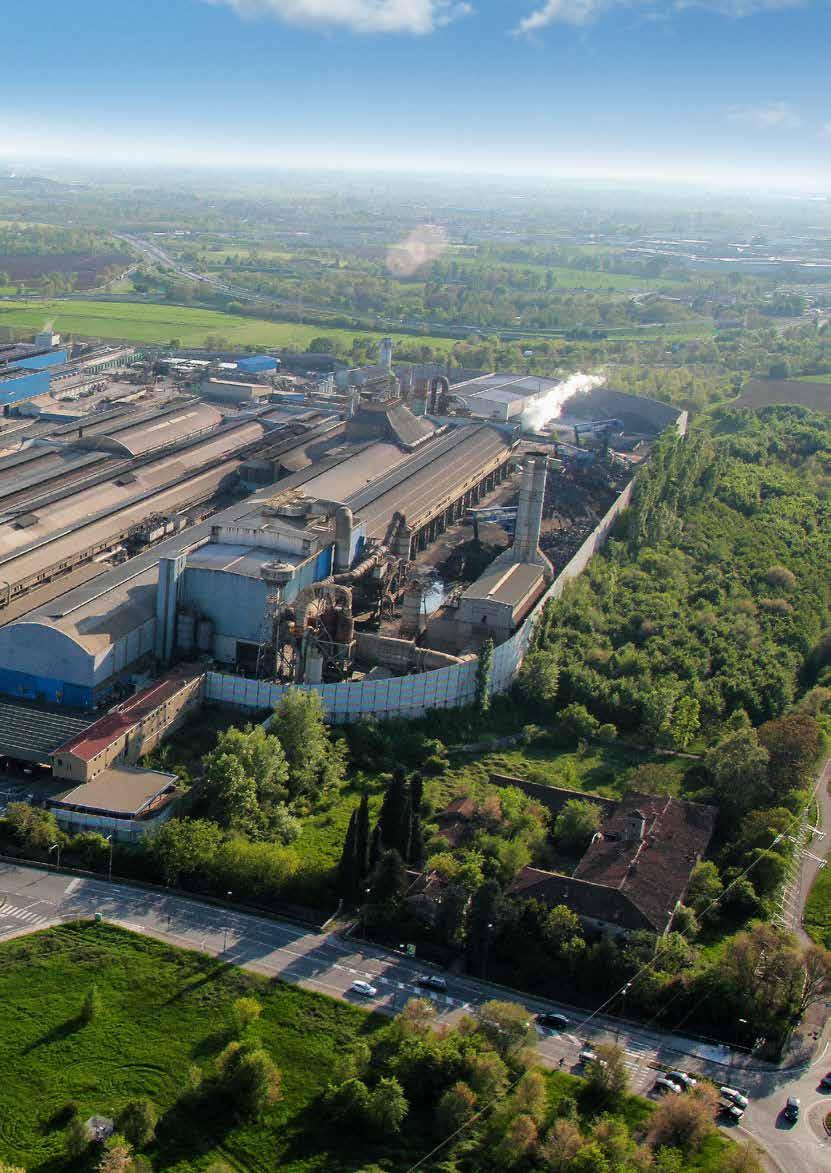
The Alfa Acciai Group has been one of Europe’s leading manufacturers of reinforcing steel and wire rod for over 60 years and has now become a benchmark in terms of cutting-edge technology and environmental awareness throughout the entire steel supply chain.
The Group, which is controlled by Siderurgica Investimenti, a holding belonging to Stabiumi and Lonati families, features high industrial flexibility and maximum operational efficiency upstream and downstream the smelting process, alongside a sound financial position and assets. These charac-
teristics enable the Group to successfully respond to changes in the domestic and foreign steel markets and the increasing awareness of citizens regarding environmental issues, by keeping the same constant focus as Alfa Acciai has reserved to its employees and customers for over six decades.
1) The companies on a red background are included in the scope of this report; those on a grey background are
“Acciaierie
S.r.l.”, the original name from which the current acronym ALFA derives, started its activity in the mid-1950s in Brescia, focusing entirely on steel production and rolling.
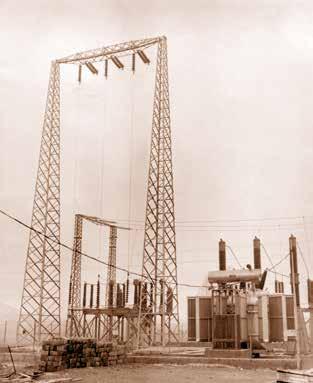
In a scenario characterised by marked socio-economic growth, in just a few years, the company gained a strong foothold and became a benchmark in the steel industry and the world of building construction and wire rod for drawing. In 1970, the company invested heavily in technological upgrading and switched to continuous casting technology, which allowed it to increase output in both the steel mill and rolling mill.
Propensity to innovate continued in the mid-eighties when the new corporate structure controlled by Siderurgica Investimenti and the gradual extension of the technical and marketing strategy for all types of construction steel allowed the company to invest further in rationalising existing production facilities and upgrading the supply chain, by supplementing the production of wire
rod and reinforcing steel in coils with the production of reinforcing steel in bars and by setting up Alfa Acciai’s “cold processing” department (now part of Alfa Derivati S.r.l.) for the production of welded mesh and recoiled wire.
In this regard, the takeover of Vicenza-based Ferroberica in 1991 enabled the company to upgrade all its cold processes to meet the requirements of the building industry, including the pre-shaping and assembling of reinforcing steel, sectors in which Ferroberica is now the largest player in Italy and second in Europe. Eager to exploit major opportunities in southern Italy, in 1998 Alfa Acciai took over Acciaierie di Sicilia in Catania, the only steel mill on the island. This major investment led to a considerable improvement in quality, safety and environmental standards, output and exports, which are favoured by the mill’s strategic position in the centre of the Mediterranean.
In order to improve the quality and supply of raw materials, scrap shredding and sorting systems were installed in the 1990s in the Brescia and Catania facilities. Alfa Acciai then set up a joint venture with the German Thyssen Sonnenberg Recycling, a world leader in the production and sale of ferrous and non-ferrous scrap, which ended in 2017 in this regard, though our business relationship has continued ever since.
In 2004, the Alfa Acciai plant installed its third rolling mill to add reinforcing steel in spooled coils to its product range, an innovation in terms of mechanical features, dimensions and packaging.
In the following years, the Alfa Acciai Group made heavy investments and increased its product range with an output capacity totalling 2.5 million tonnes a year, with a peak in 2008, when it became one of Europe’s leading producers of reinforcing steel for the construction industry.
In the new millennium, the long-pursued environmentally friendly approach has become a vital element in corporate governance. The achievement of Integrated Environmental Permit (IEP) and the setting up of the Alfa Acciai Observatory, together with the Quality, Environment and Safety Management Systems, the recycled content certifications, the voluntary European Suststeel sustainability certification and the environmental product declarations, clearly define the Group's will to pur-
sue and constantly grow this qualifying and competitive commitment.
As the Alfa Acciai Group celebrates 60 years of activity, it is responding with increasing operational efficiency, by achieving the breakeven point at lower production levels and safeguarding constant improvement in safety and environmental performance as well.
The Alfa Acciai Group further innovates its product range and in 2016 it took over the Brescia-based Tecnofil, one of the major drawing mills with galvanisers in Europe, and soon rationalizes the wire types (galvanized wire, aluzinc and bright wire), for use in building construction, electrical household appliances, the automotive industry, perimeter safety, fencing and other numerous daily applications, thus enabling the parent company to exploit the
full potential of its wire rod rolling mill in terms of quality and competitiveness.
The same year marks the acquisition of the Montirone site, still to the south of Brescia, a former closed-down steel mill that now houses an innovative department of Alfa Derivati, a strategic Ferroberica production unit, and a railway link to European markets.
With an increasing customer-oriented service, the Alfa Acciai Group places renewed focus on flexibility of the entire production range. This is complemented by the Group’s foothold in the entire steel supply chain, through upstream and downstream integration of the parent company’s activities, which enables it to respond to a wide range of its customers’ operational needs and guarantee a high-quality standard at all stages of the production process.
The plant changeover to continuous casting and heavy investment in new technology allow the company to step up production capacity in both departments: steel mill and rolling mill
Mitigation of the environmental impact of the plant, through both the installation of state-of-theart emission filtering plant system and also soundproofing of the electric arc furnaces for the main production processes
Alfa Acciai takes over Ferroberica (Vicenza), which allows the company to upgrade all its cold processes, including the pre-shaping and assembling of reinforcing steel, sectors in which Ferroberica is now the largest player in Italy and second in Europe
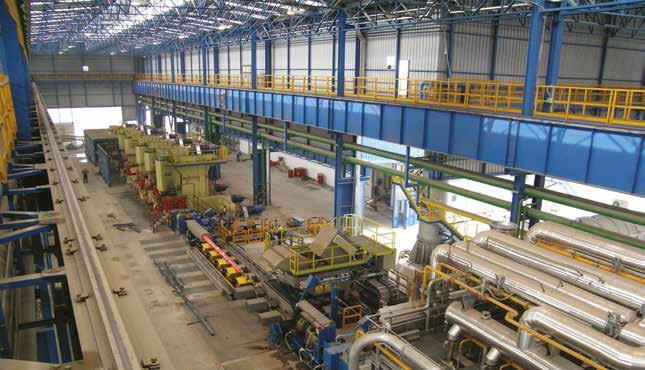
In agreement with the Brescia Town Council, Alfa Acciai develops the “Alfa 2000” plan to mitigate the environmental impact of the plant on the surroundings
Inauguration of the third rolling mill to add reinforcing steel in spooled coils and its 50th anniversary celebration with an open day for employees’ families and the local community
Alfa Acciai takes over in Brescia the industrial site of Montirone and Tecnofil, one of the major drawing mills with galvanisers in Europe, and soon rationalized the wire types (galvanized, aluzin and bright wire)
Increasingly focusing on key sustainability topics, Alfa Acciai has recently worked in partnership with A2A, Italy’s major multiutility, an innovative and efficient system for recovering thermal energy from the steel mill
GRI 102-2; GRI 102-4
The Alfa Acciai Group comprises several well-established companies specialised in various steel-making areas in Northern and Southern Italy, a guarantee of products and services qualifying the Group as an excellent business partner in terms of quality and reliability.
The Group is currently made up as follows:
In the 1950s, Alfa Acciai identified the area where to build the production premises to the south-east of the municipality of Brescia, as the vicinity of the city provided easy connection to the high-voltage grid, which is crucial for the operation of electric-arc furnaces, as well as ready-available workforce. This area, which lies between the subsequently developed areas of San Polo and major road infrastructures, becomes Alfa Acciai’s headquarters.
Within Alfa Acciai's industrial complex of over 353,000 square metres, the steel mill occupies the largest part of the plant, as steel production "starts" in the scrap yard area, where part of the scrap can be fed into the shredder, and extends through the entire production unit to the delivery platform for billets to be conveyed to the rolling mills.
More specifically, the plant comprises two electric-arc
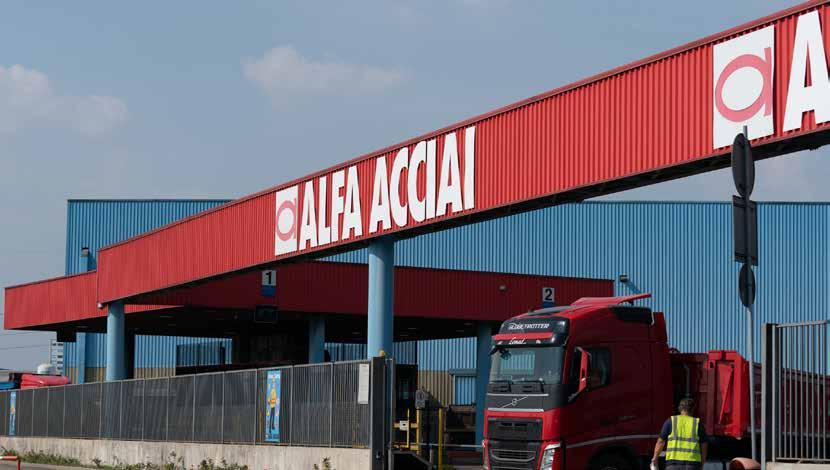
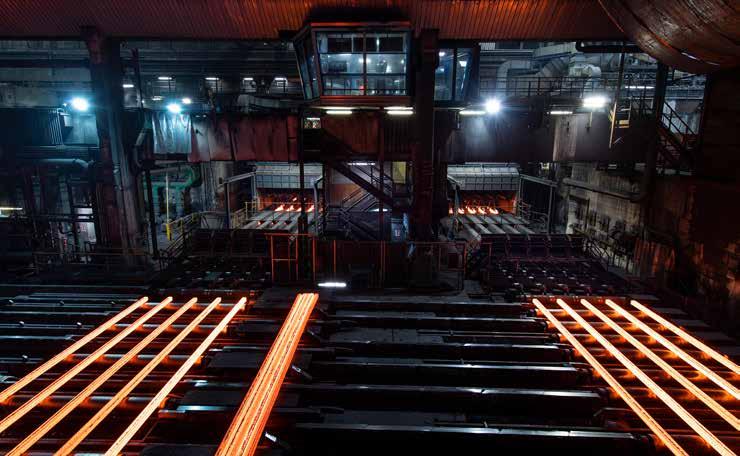
furnaces (EAFs) and two ladle furnaces (LFs), representing the steel mill’s true core process, from which two billet production lines depart to feed two five-strand continuous casting machines, the operating parameters of which are managed by a complex fully automated system.
The steel mill turns out a range of square billets, which are the semi-finished products used in the three hot-rolling departments for the production of rebar and spooled coils under the ALFA ACCIAI brand, and wire rod.
The Hot Rolling Division is equipped with three independent mills with a total production capacity of up to 2 million tonnes, and the products obtained meet the requirements of the numerous certifications required by target markets.
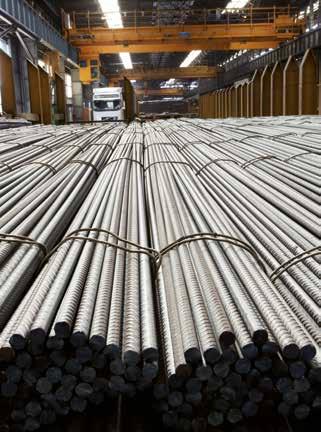
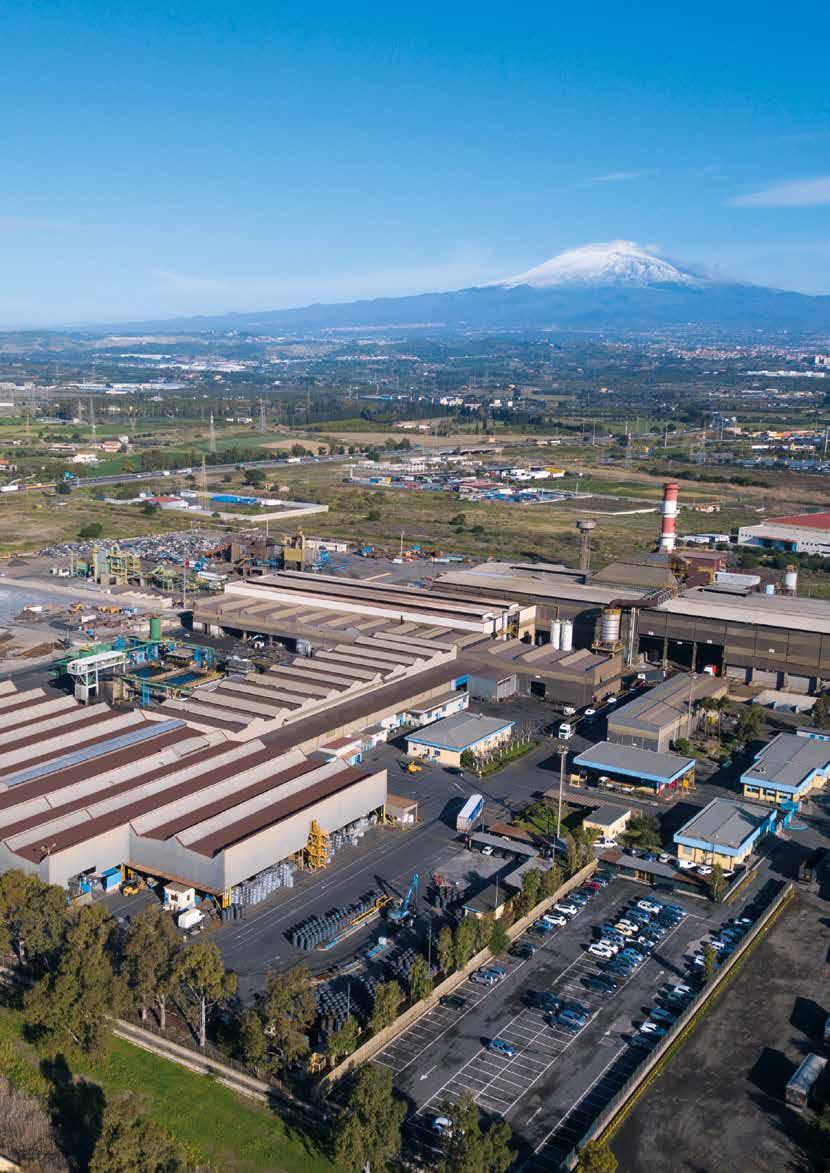
Located in the industrial district of Catania, Acciaieria di Sicilia is the only steel mill on the island. For the Group, it is a natural reference point for the southern Italian market and for exports to Mediterranean countries and beyond.
Acciaierie di Sicilia has a production capacity of 500,000 tonnes of reinforcing steel in bar and spools under the ACCIAIERIE DI SICILIA brand, which is certified for various markets.
Like Alfa Acciai and with the same quality standards,
these products are the result of the electro-fusion of Sicilian ferrous scrap and subsequent hot rolling, which uses bar packaging devices arranged parallel to the spooling line.
Thanks to its size, the latest technology used and premium quality products, Acciaierie di Sicilia has created a supply chain employing hundreds of people and has established reliable relationships with customers who have contributed to establish today’s Sicily.
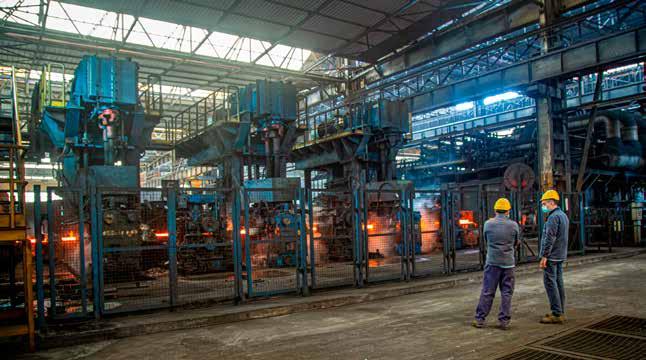
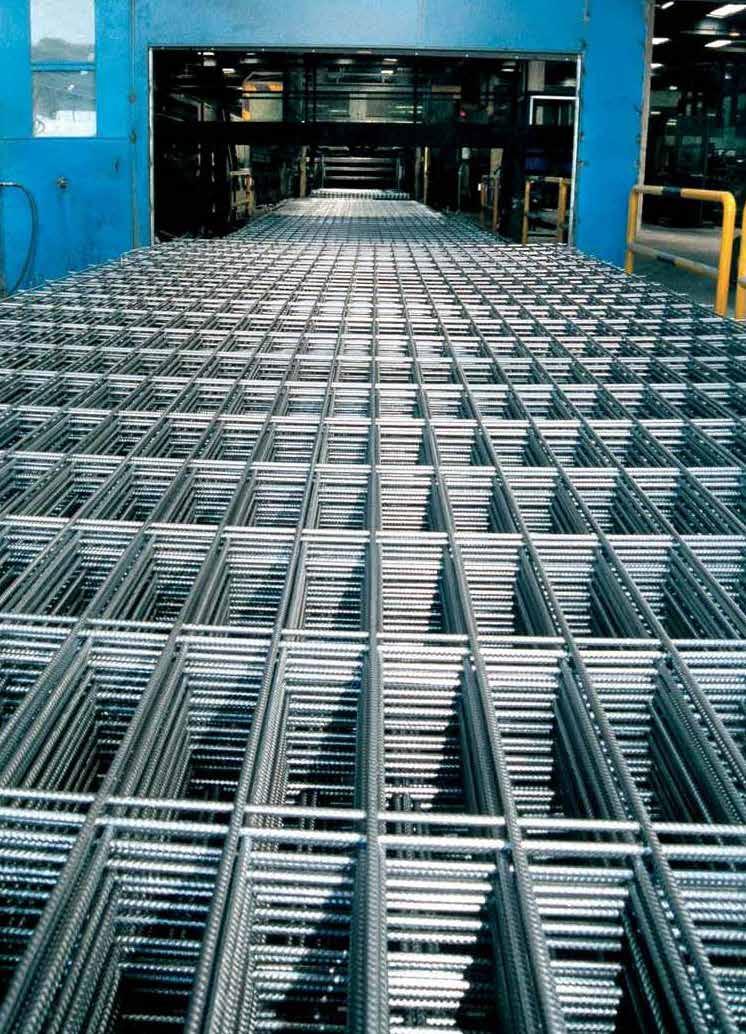
Alfa Derivati has two production sites, one within the parent’s San Polo-based industrial site and the other more recently established in Montirone, to the south of Brescia. It produces high-ductility welded mesh for reinforced concrete in a standard format and recoiled wire for the domestic and international markets for and under Alfa Acciai’s brand name.
The recoiling/stretching process uses latest generation high-output production lines, which optimise the mechanical characteristics of the wire being processed, while maintaining high ductility to obtain HD- products,
a characteristic common to all Alfa Acciai Group's products for the building industry.
Alfa Acciai was the first in Europe to adopt the “High Ductility” project for mesh products, which were traditionally obtained only from cold-rolled wires.
In recent years, major investments at the Montirone site have also led to the restoration of the railway link, which contributes to increase Alfa Acciai and Alfa Derivati exports to Central Europe, thus bringing significant environmental benefits.
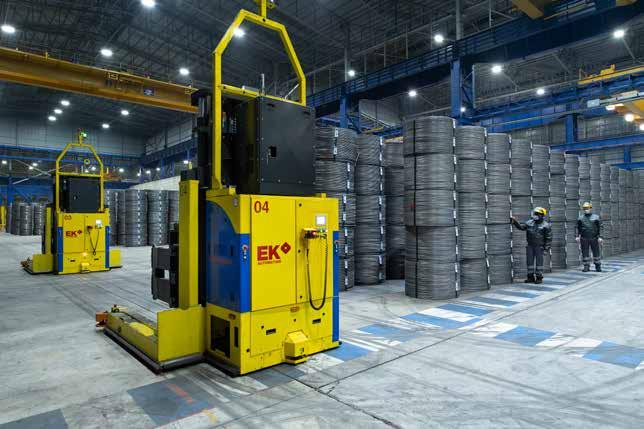
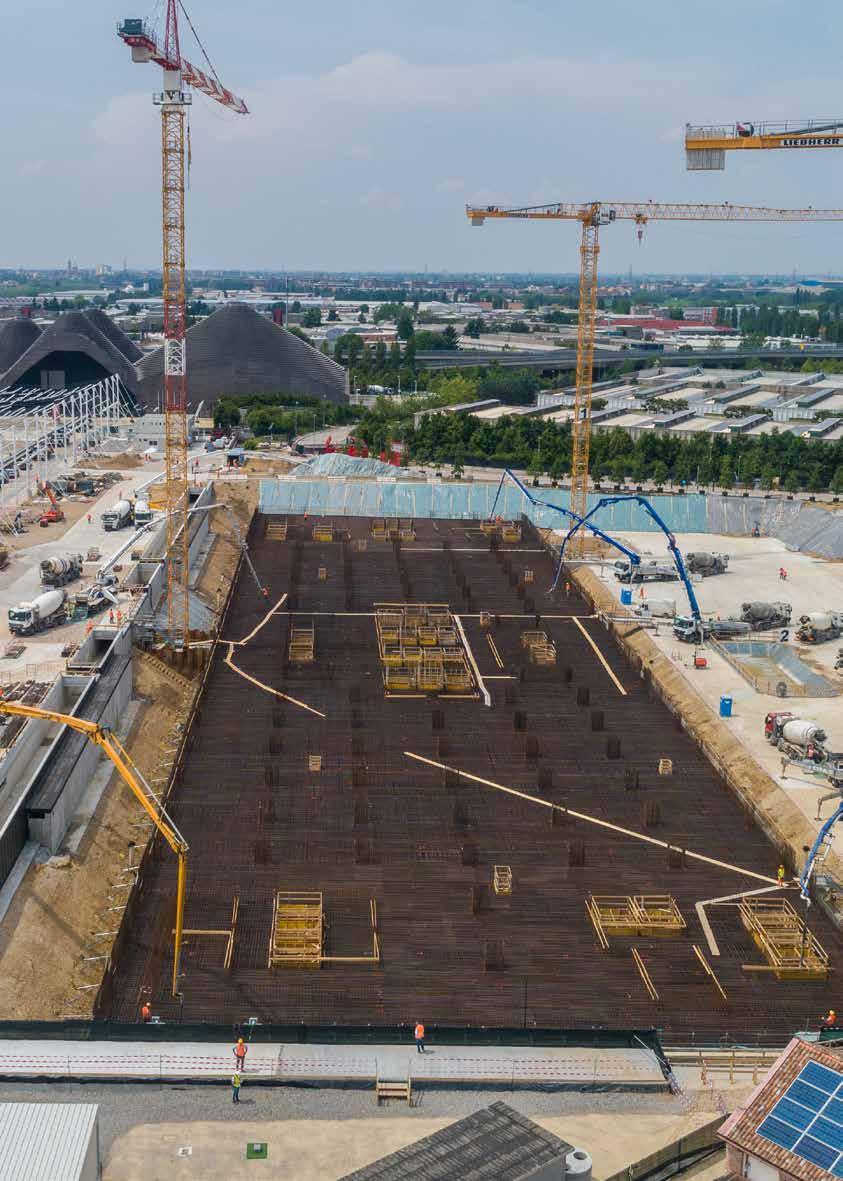
Ferroberica is the Group’s company specializing in the processing of reinforcing steel. The know-how acquired, a reliable supply chain and market competitiveness make it a national and international player. Founded nearly 50 years ago, it is the leader in Italy and second in Europe for the supply of cut & bent and assembled steel products to the main Italian and international construction enterprises.
The company's registered office and production plant is located in Vicenza and, in order to increase its market presence and offer a widespread service in the area, over the years it has opened other production units in Catania, using rebar and coils produced by the subsidiary Acciaierie di Sicilia, in Sedegliano (Udine) and more recently in Montirone (Brescia), which boasts Europe’s most technological and automated cutting and bending plant. In 2020 Ferroberica also opened two branches abroad.
All Ferroberica's production centres and loyal subcon-
tractors are located in strategic areas, close to industrial-production sites, either existing or in the process of rapid expansion, adjacent to motorways which provide rapid coverage of all routes both by land and sea.
Having been an integral part of Alfa Acciai Group for three decades, Ferroberica is now a state-of-the-art production facility equipped with latest-generation machinery and with an annual production capacity of over 300,000 tonnes.
Constant focus on the quality of service and customer care, which is a distinctive feature of the company and the entire Alfa Acciai Group, has led Ferroberica, with its highly skilled technical staff, to provide enterprises with a timely advisory service for feasibility analysis at the design stage and the development of production plans and work schedules. In addition, the company’s customer care service provides a prompt response to urgent requirements or unexpected requests for changes.

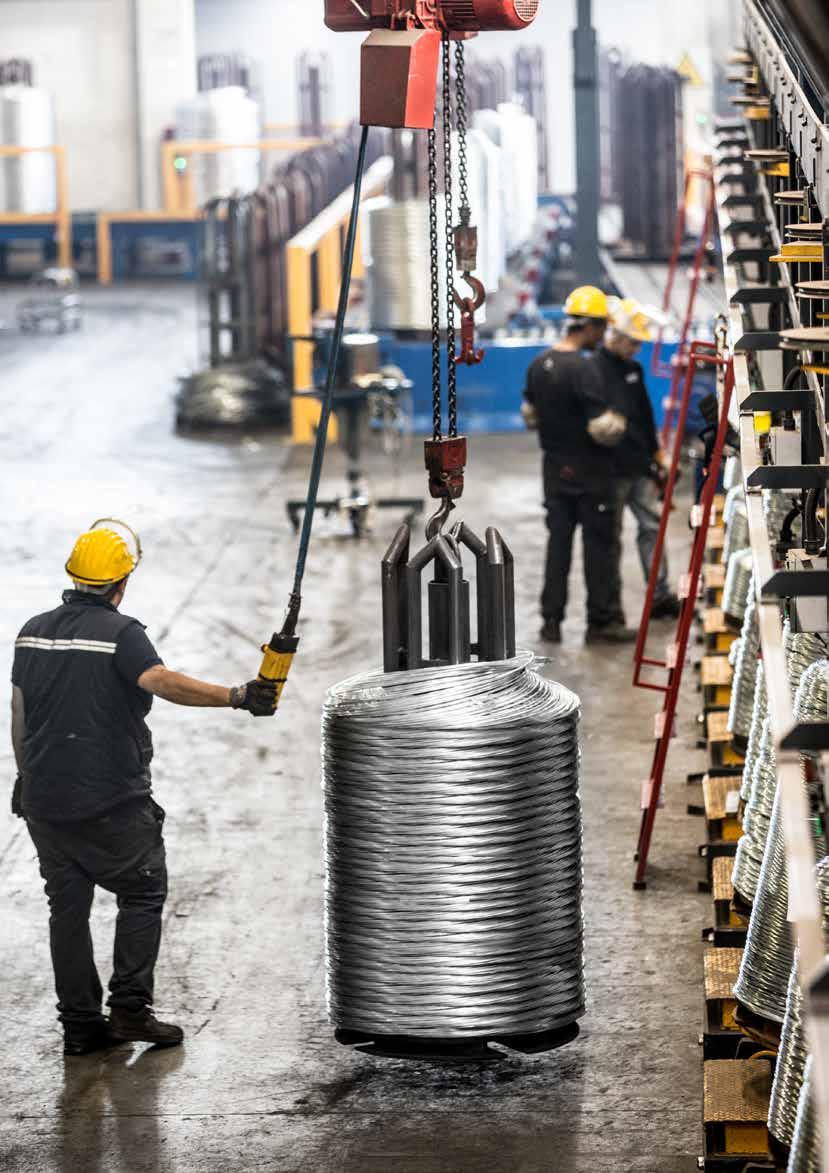
Tecnofil was established in 1994 in Gottolengo (Brescia). Since its very beginning it has developed and strengthened its core business in the production of low and medium carbon wire and in the drawing and galvanising process.
In 2016, Tecnofil joined the Alfa Acciai Group and has become one of the major drawing mills in Europe for the production of steel wire, galvanized wire, alu-zinc wire, bright wire, annealed wire, redrawn wire and skin-passed wire for endless applications.
The close cooperation with the Alfa Acciai steel mill and rolling mill has significantly increased its overall production capacity which, after the installation of a new 40-wire galvanising line, has now reached 100,000 tonnes of wire a year. The area dedicated to the production and processing of metal wire covers a surface area of 30,000 square metres and consists of dry drawing facilities, which have been designed and developed with the contribution of Tecnofil itself, plus two immersion galvanising plants.
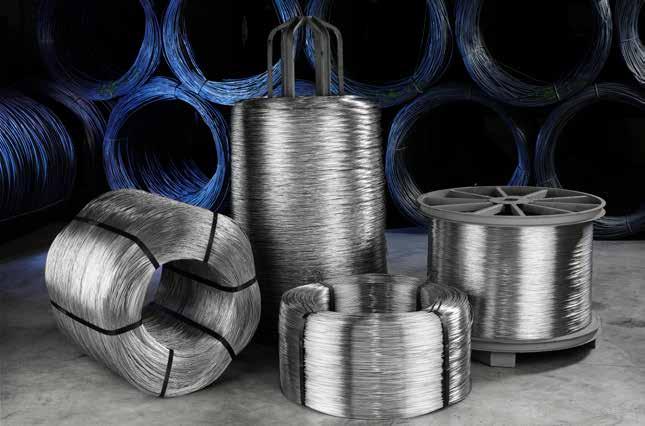
As a result of the coordination and synergies created, the Alfa Acciai Group has strengthened its presence abroad and enlarged its product range: in addition to the construction industry, where it plays a leading role, it has made decisive moves into the world of bright wire for aesthetic applications, the automotive, the household appliance industry, mechanical engineering and wire rod for a variety of applications.
Our well-established and highly qualified sales network enables us to serve the whole of Europe, North Africa, Northern and Central America and Latin America.
The main products marketed by Alfa Acciai and Acciaierie di Sicilia are: wire rod, rebar, spooled coils, welded mesh and billets.
The sale of steel products is strictly regulated, so our products are subject to well-defined statistical process
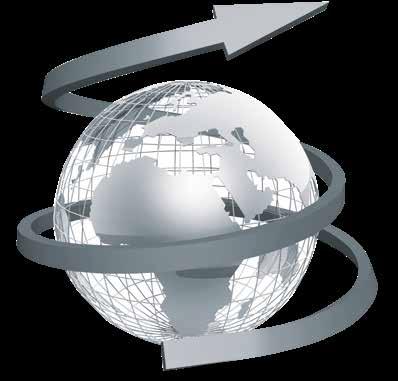
controls to ensure compliance with the required specifications. More specifically, the sale of reinforcing steel requires qualification from national bodies that carry out regular quarterly, six-monthly or annual audits (depending on the country). During the audits, checks are made on both the product and the quality management system. In terms of product target markets, the typical customers for wire rod are the wire drawing mills that use it to produce wire or strip for a variety of typical applications in the automotive, white goods industry, mechanical engineering, construction, welded mesh for civilian and military use, the manufacturing industry in general, aesthetics, agriculture and off-shore energy transmission cable reinforcement. Instead, customers for reinforcing steel are typically cutting and bending centres, distributors of building products and international dealers, as well as construction companies and precasters.
As far as Tecnofil is concerned, the company serves a variety of sectors as it produces low-to-medium carbon galvanised, zinc-aluminium and bright wire for applications such as building construction, domestic and household appliances, automotive, enclosure security and fencing systems and many more everyday applications. Last but not least comes Ferroberica, a leading company in Italy and second in Europe for pre-shaping and assembling reinforcing steel for leading construction companies in Italy and neighbouring countries, for use in all structural road, railway and maritime works and in public, industrial and private buildings.






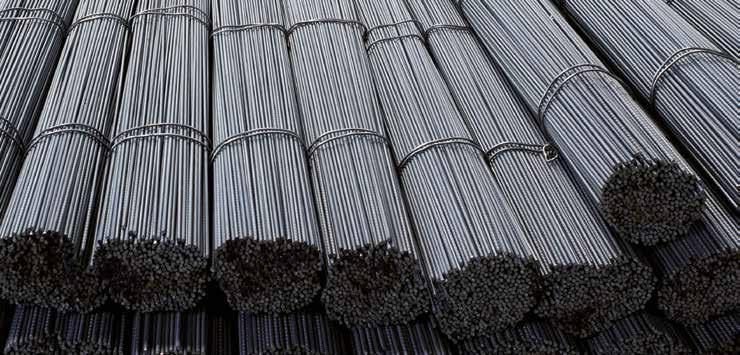






GRI 102-12; GRI 102-13
Alfa Acciai, Acciaierie di Sicilia and Ferroberica are members of the local branches of Confindustria, the General Confederation of Italian Industry, while Alfa Acciai and Acciaierie di Sicilia are also members of Federacciai, the national association representing the main steel manufacturers. Indirectly through Federacciai, Alfa Acciai and Acciaierie di Sicilia are also members of Eurofer – the European steel association. Ferroberica is a member of ANCE, the national association of private construction contractors, and participates monthly in the workshops of the Major Infrastructure Committee to discuss new regulations and opportunities with the owners of major Italian construction enterprises.
In addition to these trade associations, Alfa Acciai subscribes to the following organisations operating at a local, national and international level.
Since its inception, Alfa Acciai has participated in nu-
merous technical workshops of Ramet, a consortium that brings together 21 Brescia-based metalworking companies in a joint project to study and monitor the impact of their production activities on the workplace and the surrounding environment, by involving them in roadmaps aimed at environmental protection. Research, transparency and dialogue are the Consortium guidelines, whose activities are mainly concerned with the following themes: Ricerca, trasparenza e dialogo sono le linee guida del Consorzio, le cui attività svolte riguardano principalmente i seguenti temi:
• Definition of sampling criteria and methods for scrap characterisation;
• Issues related to the Intergovernmental Panel on Climate Change (IPCC) and Best Available Technologies (BAT), e.g., coordinated participation in the review of sector BREFs;
• Identification of the actual contribution of activities in the metallurgical industry to the presence of airborne
particulate matter by means of modelling studies, environmental sampling under validation and chemical analyses;
• Study of the phenomena and parameters that influence the formation of organic micropollutants through measurement campaigns and the study of optimal operating conditions;
• Quantification and qualification of diffuse emission phenomena and assessment of environmental and health consequences;
• Identification of the optimal solutions for the containment, treatment and analysis of rainwaters;
• Optimisation studies on the treatment, disposal and possible reuse of waste;
• Study and research on environmental impact, the treatment of polluted soil, the inhaled doses of pollutants by workers and their correlation with various diseases, epidemiological studies on various work-related diseases;
• Risk assessment of the main occupational diseases and development of general assessment methodologies.
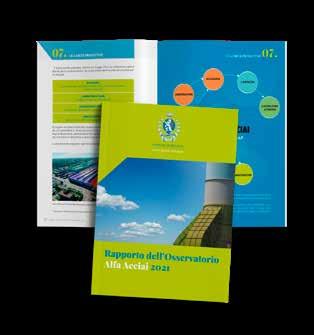
Alfa Acciai Observatory
The Observatory is a forum created and operated under the auspices of the Brescia Town Council, and comprises the Councillor for the Environment, supra-communal Green areas and Parks, who acts as Chairman; the Head of the Environmental Sustainability Sector; the Chairman of the Council Commission for Ecology, Environment and Public Protection; the Minority Town Councillor; the representative of the Council for the Environment of the Municipality, Alfa Acciai’s Representative; Alfa Acciai Employee’s Union Representative; a Representative of San Polo Case Administrative District Council; a Repre-
sentative of San Polo Parco Administrative District. The Observatory periodically assesses the impact of the steel mill on the environment, with particular reference to:
• state of progress of works underway;
• assessment of the main problems perceived by local residents and possible solutions;
• assessment of the environmental monitoring data.
As proof of the utmost respect and consideration of its stakeholders and a guarantee of its commitment to sustainability and eco-compatibility, Alfa Acciai participates pro-actively at Observatory forums, provides the necessary premises, equipment, information and support in tackling the issues being analysed.
The latest Alfa Acciai’s Observatory Report was issued in June 2021.
Since 2011 Alfa Acciai has collaborated with a group of local residents, called CO.DI.SA, the health and environmental committee. Periodic meetings are held to inform the local residents and share with them improvement projects for the environment and production that the company has put in place or intends to develop.
The meetings allow confrontation and continuous growth on both sides and give the possibility to inhabitants to better understand the world of production and interact directly with the company.
The Italian steel standards unification body in charge of carrying out standard-setting activities for the steel industry (steel and cast iron) and the sector dedicated to materials, equipment and facilities at sea for the oil and natural gas industries. UNISIDER represents Italy at the European standards organisations (CEN) and worldwide (ISO) in the areas of competence. As part of this activity, Alfa Acciai participates in technical committees for the preparation and modification of standards for the steelmaking industry. On the strength of this international experience, Alfa Acciai can advise its customers on all issues relating to product standards, from reinforcing steel to wire rod and all its many applications, not to mention coating standards such as galvanisation.
A benchmark for the Italian steel industry, its corporate purpose is the dissemination of the science and technology of metallic and other materials for mechanical engineering. As a member keen to pursue ongoing dialogue with producers, users and researchers interested in the subject, Alfa Acciai attends courses, organises and hosts
them in its own premises and liaises with study centres of interest, such as:
• "Steelmaking" Study Centre, for the progress and improvement of steelmaking technology;
• Study Centre for "Product Control and Characterisation", for the methods and laboratory equipment used in the final qualification of products, which focuses on such issues as mechanical testing, non-destructive testing, chemical analysis and surface analysis;
• Centre for the Study of "Plastic Processing of Metals", which deals with hot and cold rolling, forging and all metalworking operations involving permanent deformation, in terms of theoretical study, practical applications and technological cycles.
ADETS - L’Association pour le Développement et l’Etude du Treillis Soudé
Alfa Acciai is a member of ADETS, the French association for the development and use of welded mesh. This entails a process under which we can follow customers at all stages, from project management to commissioning, providing qualified assistance in their building project. An expert team of specialists with different tasks can provide customised and feasible solutions based on precise specifications.
A platform that promotes initiatives, research activities and technological and innovative projects, especially on issues related to renewable energy, climate change and circular economy, aimed at creating a sustainable European steel industry in the decades to come.
A trade association that represents and defends the interests of inert waste recyclers in Italy and the rest of Europe. In operation since the year 2000, this association was founded by a number of entrepreneurs who, based on their expertise in the recycling of this type waste, decided to pool their forces and create the necessary conditions for the development and growth of the recycled aggregates market.
Reach Ferrous Slag Consortium
European consortium in charge of filing dossiers for registration with the European Chemical Agency (ECHA) on behalf of its members.
Last but not least, Alfa Acciai is also a member of FINCO, the Italian federation of industries for products, systems and services for construction and maintenance.
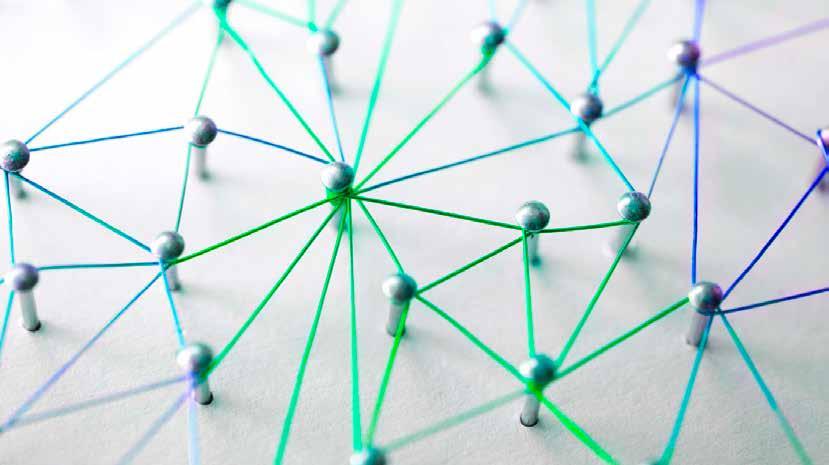
GRI 102-40; GRI 102-42; GRI 102-43; GRI 102-44
In carrying out its business activities, the Alfa Acciai Group enters into relations with a number of stakeholders. According to GRI Standards2 a stakeholder is an “entity or individual that can reasonably be expected to be significantly affected by the organisation's activities, products and services, or whose actions can reasonably be expected to affect the organisation's ability to successfully implement its strategies and achieve its objectives.”
In order to prepare a sustainability report in line with GRI principles, especially including the principle of inclusiveness3, Alfa Acciai has mapped its internal and external stakeholders in order to identify the most relevant ones.
The categories identified are listed below:
Internal stakeholders
External stakeholders
CUSTOMERS
SUPPLIERS OF GOODS AND SERVICES
OWNERSHIP
EMPLOYEES AND COLLABORATORS
TRADE UNION REPRESENTATIVES
AGENTS
Stakeholder
Although the Group did not directly involve stakeholders in the process of materiality analysis for the preparation of this first Sustainability Report, over the years Alfa Acciai has developed relations with its stakeholders through different channels of dialogue. The communication channels used are diversified and appropriate for each category of stakeholders: ranging from the more traditional ones, such as telephone calls and questionnaires, business meetings, formal briefings, technical conferences, external visits, notice boards, press releases and the
LOCAL COMMUNITIES
TRADE ASSOCIATIONS
INSTITUTIONS
PROVIDERS OF CAPITAL
INSURANCE ENTITIES
RESEARCH AND INNOVATION ORGANISATIONS
CONTROL AND CERTIFICATION BODIES
REGULATORS
COMPETITORS
well-established Observatory to virtual ones, such as video conferences and the Group's websites, where you can find product data sheets, numerous certificates, promptly updated press releases and the much appreciated areas reserved for customers, agents, suppliers and employees containing the most varied documentation. More recently, Telegram was used for employees, which in the Covid and smart-working period proved to be an extremely immediate means of communication for disseminating continuous instructions and releases.
2) The Global Reporting Initiative (GRI) Standards are the reporting standard chosen by the Alfa Acciai Group for the preparation of its sustainability report. These standards were defined in 2016 and updated in 2020 by the GRI.
3) “The organisation is required to identify its stakeholders and explain how it has responded to their reasonable interests and expectations.” - GRI 101: Reporting principles.
GRI 102-47
The Group followed the approach of the selected reporting standards, i.e., the GRI Standards, and conducted a materiality analysis to identify the issues to be reported in the Sustainability Report.
More specifically, the Alfa Acciai Group has implemented a process to identify “material topics”, which are defined by the GRI Standards as “a topic that reflects the significant economic, environmental and social impact of the organisation or substantially influences the assessment and decisions of stakeholders”.
The identification of these material topics required the Group to perform several activities, including:
• Mapping of relevant stakeholders;
• Analysis of the internal context and desk analysis of internal documentation (including, for example, the Code of Ethics and the Quality, Environment and Safety Policy);
• Analysis of the external context in which Alfa Acciai Group companies operate;
• Analysis of sustainability trends at national, European and global level;
• Analysis of benchmarks with national and international peers and competitors;
• Direct involvement of certain employees.
As a result of the above activities, the Alfa Acciai Group has identified an initial set of sustainability topics that are relevant to both its businesses and stakeholders.
In order to finalise the materiality process and select the material topics from among those that emerged as relevant, the Group decided to involve 17 individuals, belonging to the various Group companies and holding key positions.
All participants were asked to express the importance of the material topics identified, assigning a score from 0
to 5, from the point of view of both the Group and the reference stakeholders assigned to them on the basis of their skills and position held.
This identification process, first with the Group and then with the stakeholders, made it possible to simultaneously collect an assessment of the topics from two different points of view. In the future, through a gradual process of involvement, the various stakeholders will be asked to personally express their point of view on the topics covered by the materiality analysis.

Relevance for the Stakeholders
HIGHLY RELEVANT
Occupational safety
Business integrity
Economic performance
Pollutant emissions management and decarbonisation
Employment, health and well-being of workers
Research and innovation
Training and skills development
Care for local communities
Respect for diversity and inclusion
IT security
Product quality and customer satisfaction
Energy efficiency
Circular economy
Sustainable supply chain management
Water consumption
Relevance for the Alfa Acciai Group
The material topics that emerged downstream the process, which define the contents of this document, are listed below:
Governance topics
Environmental topics
Social topics
Business integrity
Economic performance
Circular economy
Energy efficiency
Pollutant emissions management and decarbonisation
Employment, health and well-being of workers
Occupational safety
Care for local communities
Sustainable supply chain management
Product quality and customer satisfaction
HIGHLY RELEVANT
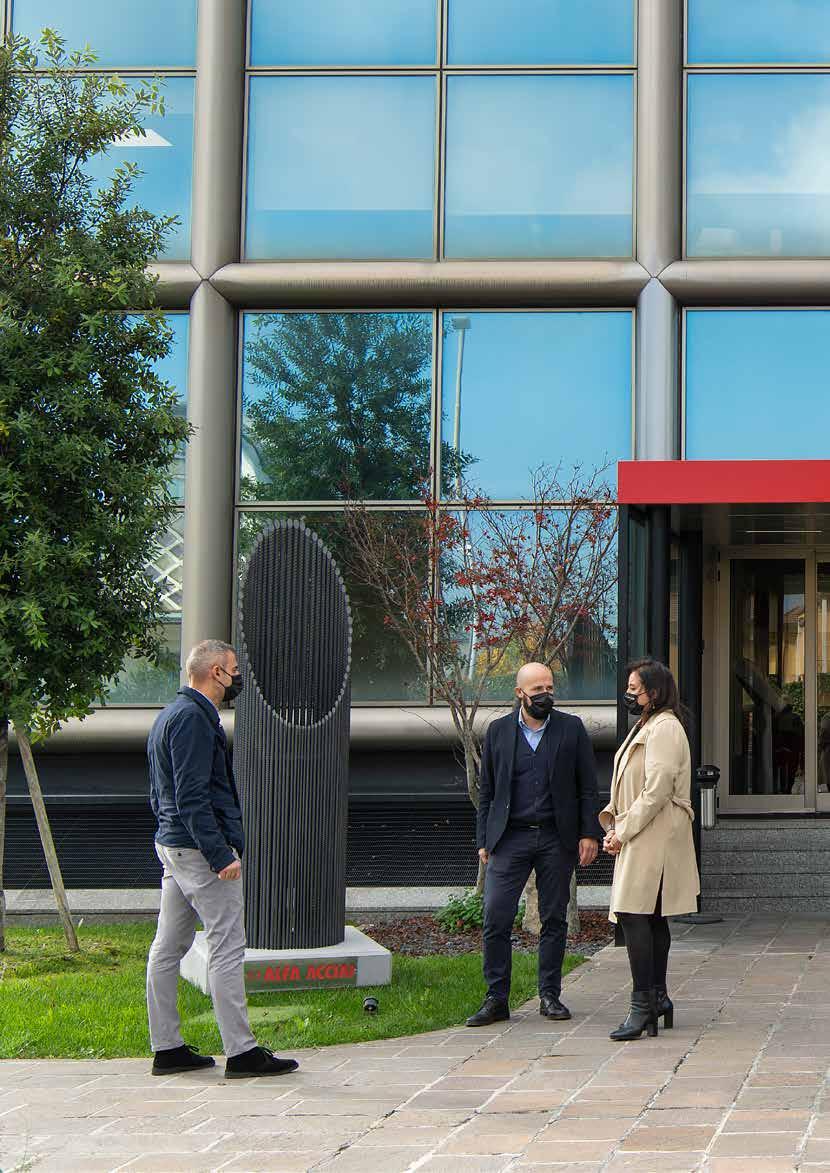
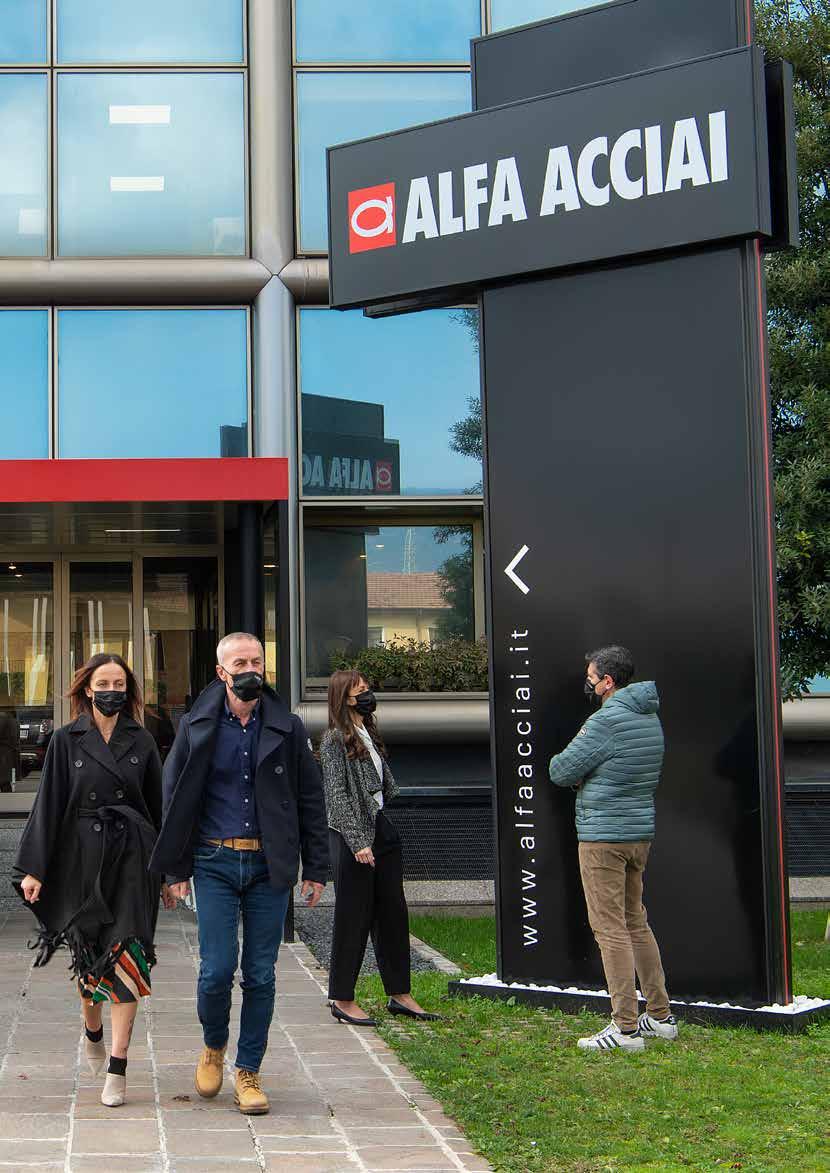
The parent company Alfa Acciai S.p.A. has adopted a so-called “traditional” governance framework, with the following corporate bodies as envisaged in the Articles of Association:
• Shareholders’ Meeting: with exclusively deliberative functions, whose decisions are limited by law to the most important decisions of corporate life, with the exclusion of managerial powers;
• Board of Directors: comprising three to thirteen members, vested with the broadest powers for the ordinary and extraordinary management of the company, with the power to perform all actions deemed necessary or appropriate for the achievement of the corporate purposes;
• Board of Statutory Auditors: comprising three statutory members, with supervisory functions over the company's administration in accordance with the provisions of Article 2403 of the Civil Code.
The shareholders' meeting has appointed KPMG S.p.A., a company of recognized high standing, to perform the financial statement audit pursuant to Legislative Decree 39/2010.
Alfa Acciai S.p.A.’s Board of Directors has delegated part of its powers to three Managing Directors, assigning each of them the following powers:
• Chairman and
• Deputy Chairman both legally representing the company and are vested with the powers necessary for ordinary administration;
• Director with delegated powers, who legally represents the company in the management of occupational health and safety and environmental issues.
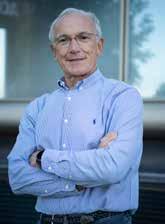
In order to monitor and safeguard sustainability issues, Alfa Acciai has therefore decided to assign specific powers and responsibilities to one of the directors, who is flanked by the Directors/Employers of Alfa Acciai’s Production Units and other professionals with special skills in managing and monitoring specific aspects.
Directors
Maddalena Franceschini
Francesco Lonati
Marco Lonati
Gianluigi Piccioli
Giacomo Polotti
Clara Stabiumi
Board of Directors
Chairman Ettore Lonati
Deputy Chairman and Chief Executive Officer (CEO) Amato Stabiumi
Director with Delegated Powers for OHS&E
Giuseppe Cavalli
Board of Statutory Auditors
Chairman
Giovanni Consoli
Statutory auditor
Mariano Casella
Statutory auditor
Antonio Minervini
The Subsidiaries are independent entities in terms of assets, organisation and management. Each of them has a Board of Directors with one or more Directors vested with specific delegated powers. It is worth noting that Alfa Acciai provides its subsidiaries with service activities under the terms of specific contracts.
Throughout its sixty years of existence, Alfa Acciai has successfully redesigned its business model by anticipating the national and international macro-trends that have characterised the world of steel production. After the 2008 financial crisis, linked to the explosion of the US sub-prime mortgage bubble, the steel construction industry, which is the Group's core business, was hit hard, causing a sudden halt. At that time, Alfa Acciai had to rethink its policy by devising a new vision that included an action plan to ensure long-term business continuity.
This change involved all business processes as it led to a shift to a new organisational model based on Production Units, which favoured focusing on pre-set objectives, both in quantitative and first and foremost in qualitative terms. The Staff functions were also concerned by this
new organisational structure in that they had to adapt to a new model.
Alfa Acciai’s current governance structure is as follows:
▶ Steel Mill Production Unit, dealing with the manufacture of steel;
▶ Rolling Mill Production Unit, dealing with the manufacture of wire rod, hot-rolled rebars and coils;
▶ Central Services Production Unit, comprising the following company functions: Quality, Production Planning and Logistics; Human Resources; Information Technologies; Scrap Purchasing; Environmental Service; Process Energy Dynamics; Construction; Integrated Management System;
▶ Sales Department;
▶ Purchasing Department;
▶ Administration, Finance and Control Department. Each production unit has a manager, who also covers the role of Employer.
The Production Units are coordinated by a Chief Operating Officer (COO) who interfaces with the various departments and is responsible for directing and supervising industrial operations as well as organising the sustainable development of production activity.
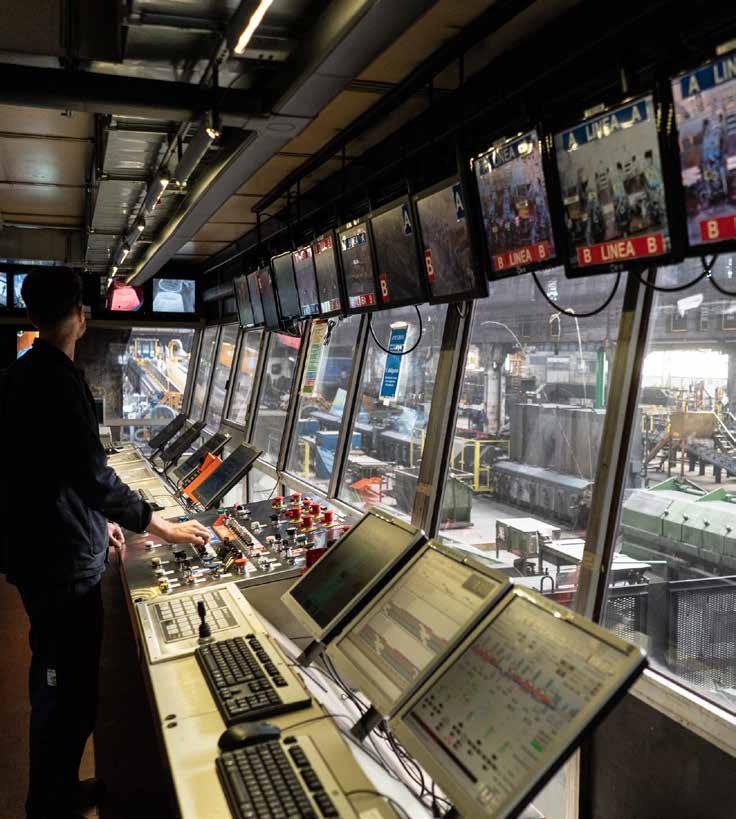
Business integrity
Description of topic and its relevance
Scope of the topic
The ability to pursue business objectives using ethical, responsible conduct that always complies with standards, regulations and legislation.
Business integrity is a strategic choice for the Alfa Acciai Group, which is easily summarised by the company's mission: "To facilitate the growth of a sustainable business, by producing and developing steel products in line with optimal work conditions and minimising the environmental impact of our operations."
Responsible, transparent conduct impacts the Group across the Group, generating benefits in internal relationships and in relationships with external stakeholders. It is essential for creating a climate based on trust and mutual respect.
The Alfa Acciai Group is fully aware that a responsible and sustainable economic strategy is essential for achieving longterm business success. As a result, the Group has established and nurtures excellent relationships with people and the communities in which its premises are situated, and is committed to always conducting business operations in line with the following values:
The Group aims to maintain and develop a relationship of trust with its stakeholders i.e., the individuals, groups or organisations whose input is necessary for achieving company objectives, or who have an interest in their achievement.
Situations in which parties involved in business transactions have or appear to have a conflict of interests must be avoided when undertaking any activity. This includes cases in which a collaborator pursues an interest that differs to the company mission and balancing stakeholder interests, or gains personal benefit from company business opportunities, and cases in which the representatives of customers, suppliers or government departments operate in conflict with the duties of trust relating to their position in relationships with the Group.
The Group does not discriminate on the basis of age, gender, sexual orientation, health, race, nationality, personal opinion or faith in decisions that affect stakeholders (customers to be served, relationships with associates, personnel management, allocation of duties, supplier selection and management, relationships with local communities and their representative organisations).
Every company in the Alfa Acciai Group is demonstrating its commitment and desire to combine sound business management with respect for people and the surrounding environment, by adopting a Code of Ethics inspired by the principles set out above. The Code of Ethics and its contents are based on the principal standards, guidelines and best practices available nationally and internationally on the subject of human rights and corporate social responsibility.
Each Group company has adopted its own Organisation, Management and Governance Model as per Legislative Decree 231/2001, of which the Code of Ethics is an integral part, and through which it promotes and publishes its corporate and work ethics, with a view to preventing the offences set out in said legislative decree in relation to corporate liability.
Furthermore, each company has appointed a Supervisory Body, which is responsible for overseeing the effective implementation of the Governance Model and reports to the Board of Directors on the activity performed. The Supervisory Body is made up of qualified members with technical and professional expertise who, when carrying out their role, guarantee consistent action, autonomy and independence with respect to the management body.
Training in relation to the Code of Ethics is essential for communicating the Group's guiding values and rules of conduct, and is provided along with the training deliv-
ered to the recipients of the Governance Model as per legislative decree 231/01.
Given the importance for the correct management of relations with stakeholders, the Code of Ethics is referred to in the documentation for business partners and attached to the main contracts stipulated by Group companies.
Note that the Code of Ethics is valid in Italy and abroad. It can be consulted on the Group's websites (www.alfaacciai.it, www.tecnofil.net, www.ferroberica.it) in an Italian or English version.
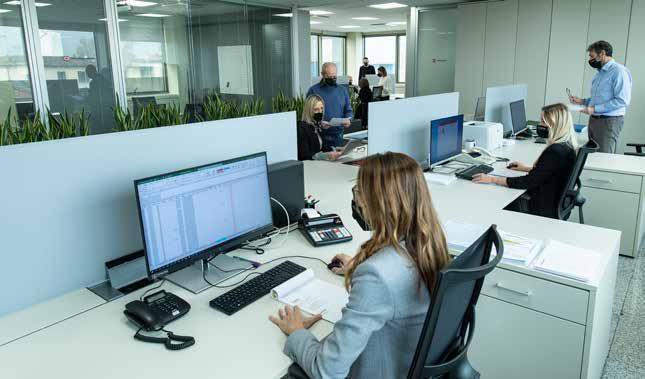
In order to ensure an ability to evolve within a continually changing scenario, a procedure involving the support of independent consultants commenced in September 2020 and ended in September 2021, to carry out an indepth analysis and a liability Risk Assessment process at all of the Group's nine production facilities. The analysis focused on Employee Liability, Third-Party Liability and Product Liability, and was supplemented by a Risk Mitigation activity in support of the already solid liability risk management and control strategies in place at the Group's individual companies.
The procedure applied an in-depth analysis of the different aspects of each key factor, and a description and/or
technical comments produced on the current situation at the company. If deemed necessary, one or more suggestions for improvement and/or risk mitigation measures were formulated for each issue. Furthermore, each issue was given a current rating and a target rating to aim for, thanks to a careful assessment of risk scenarios with the rationale of continually improving resilience. Overall, the procedure was implemented to ensure better protection of company assets, further safeguard economic and financial results over time, increase reliability, and increase the continuity of products/services supplied to customers and the market in general.
In 2001 Alfa Acciai and other Italian steel manufacturers were involved in a dispute with the European Commission regarding anti-trust legislation, resulting in 3 decisions being reached over the course of almost two decades, the first two of which were annulled by the relevant courts.
More recently, in 2019, Alfa Acciai challenged the Commission's third decision before the Court of the European Union. The Commission submitted its own defence, and Alfa Acciai responded to this in January 2020. The Court is expected to make its decision by the end of 2021, or in the first half of 2022 at the latest.
Concurrently, in 2017 the Italian Competition & Markets Authority fined Alfa Acciai S.p.A. and other steel manufacturers for alleged price fixing agreements for the sale of some products.
The decision was challenged at Lazio Regional Court, which granted the appeal in 2018 and annulled the fine. Finally, in 2020 the Council of State rejected the defence
submitted by the Antitrust Authority, closing the dispute definitively.
Overall, during 2019, Alfa Acciai had to deal with two legal actions related to alleged antitrust violations. At the end of 2020 only one such action is pending.
To support the focus given to this matter, Alfa Acciai adopted an Antitrust Code targeted at all of the Group's companies, their managers, staff and collaborators. This code aims to clarify the principles and regulations stipulated to protect competition, and to develop a corporate culture to this effect, thereby preventing the risk of potential conduct that does not comply with anti-trust regulations.
It should also be noted that the Group companies have not been registered in any episodes of corruption, nor has it incurred in administrative or judicial sanctions relating to non-compliance with environmental, social and economic legislation and regulations.
its relevance
Ability to create and provide value for all stakeholders via transparent conduct in line with core business operations. Achieving suitable economic performance is essential for sustainable, responsible business development and long-term success.
The creation of value for all stakeholders must involve achieving positive economic results. The Group interprets economic sustainability as a balance between growth expectations of business value, safeguarding the environment, protecting employee health and safety, and satisfying and respecting customers and suppliers.
Overall, the economic and financial information in the Sustainability Report 2020 includes the performance of Alfa Acciai S.p.A. and its operating subsidiaries: Acciaierie di Sicilia S.p.A., Alfa Derivati S.r.l., Ferro Berica S.r.l. and Tecnofil S.p.A.4. More specifically, in addition to Alfa Acciai S.p.A., the following companies are included within the scope of consolidation:
di Sicilia S.p.A. Catania
Derivati S.r.l. Brescia
Tecnofil S.p.A. Gottolengo (BS) 3,500,000
Ferro Berica S.r.l. Vicenza
4) Given their peculiarities as real estate businesses, the non-operating companies have not been included in the scope of consolidation as they are not considered relevant for the purposes of this report.
The table below shows the Group's economic and financial figures for the financial years 2019 and 2020 according to GRI 201-1. Revenues in 2020 declined by 19%, strongly linked to the effects of the Covid-19 pandemic on production activity and prices. Since the outbreak of the pandemic, the Group's management has focused primarily on protecting the health of its employees and family members and secondly on safeguarding its assets and financial standing.
The six-week closure of production sites, ahead of the lockdown measure subsequently issued by the Govern-
ment, and the compulsorily reduced output in the first post-lockdown months to avoid risks of contagion, clearly had a strong impact on sales and production volumes for the year, with consequent repercussions on the operating result for the year, which was partly mitigated by efficiency measures on operating costs. Nevertheless, the Group adhered to its investment plan, which focused on upgrading equipment, energy efficiency, the environment and safety, partly relying on its well-proven financial soundness.
Value distributed to stakholders in 2020
Value allocated to suppliers
Value distributed to capital suppliers
Value distributed to capital providers
Value distributed to Public Administration
Value distributed to local community
5) Revenues coincide with the direct economic value generated and include the value of
GRI 207-1
The Group operates with honesty and integrity in tax matters, aware of the importance of tax revenue in contributing to the economic and social development of the country. The Group's relationship with the tax authorities has always been cooperative and transparent, and it has never used conduct that could obstruct auditing activities.
Tax objectives in the Group can be summarised as a commitment to meeting tax obligations in a timely manner, ensuring taxation in the Group is correct, and overseeing and mitigating tax risk.
Furthermore, to achieve these objectives, the Group contributes to economic development by fulfilling various tax requirements, such as:
▶ income tax, as a direct tax on corporate profit;
▶ property tax, collected on selling or leasing property;
▶ employment tax, which includes tax collected and paid to the tax authorities in relation to employees;
▶ indirect tax, such as VAT, customs duties and levies etc.
The Group considers tax as a business expense, and as such it must be managed in accordance with legislation. Therefore, tax compliance is ensured not only by Group personnel, but also by partnerships with major tax advisory firms that support companies in meeting tax obligations and understanding new legislation introduced in the tax system.
It should be noted that all companies in the Group are resident in Italy and meet their tax requirements in Italy.
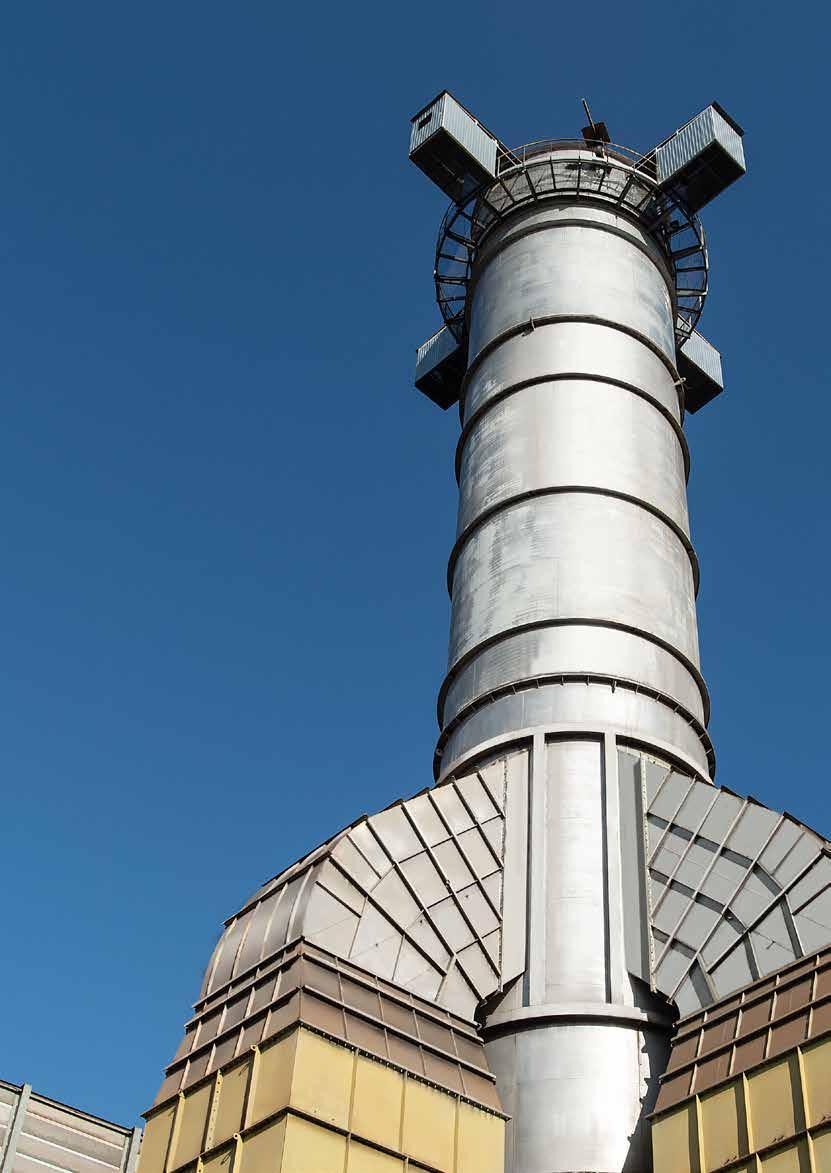
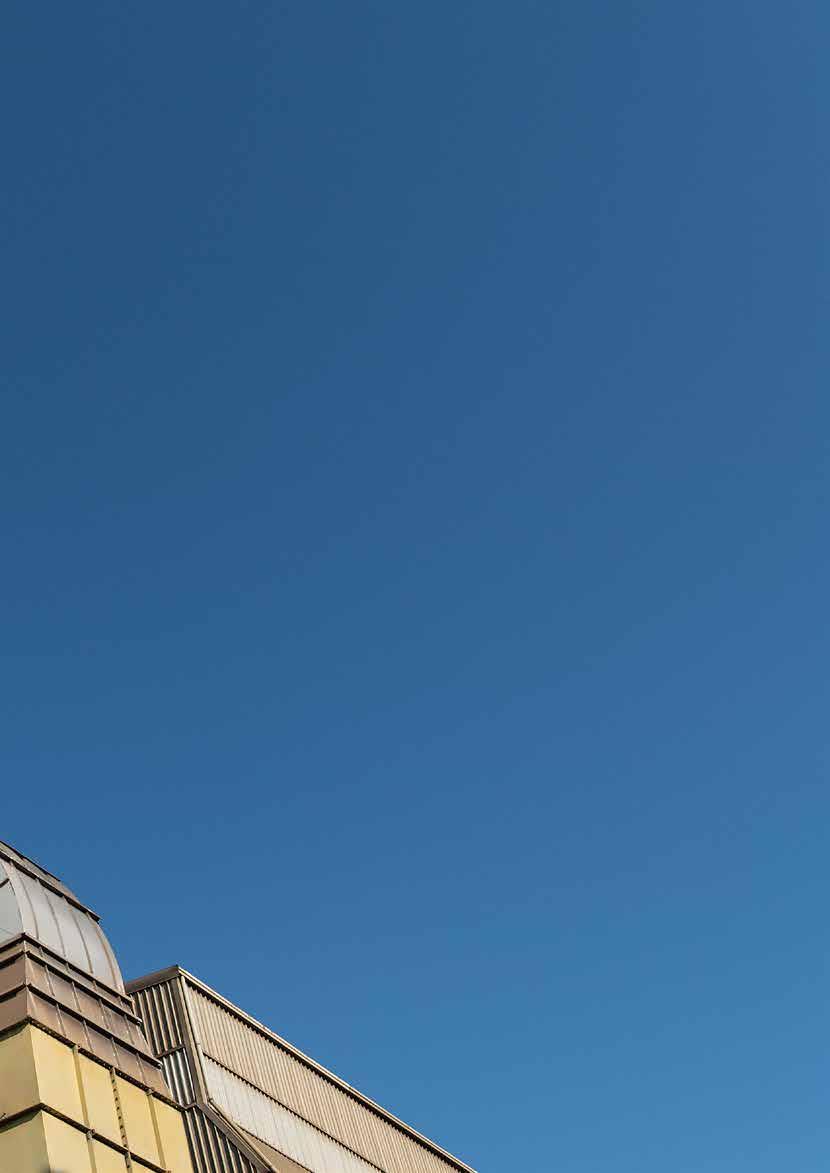
Decarbonisation undoubtedly represents the greatest challenge the steel industry is currently facing. The main aim is to implement energy transition processes that progress towards achieving more efficient, lower-impact models.
Alfa Acciai and Acciaierie di Sicilia have the most significant energy consumption and environmental impact, given the type of process and high production volumes. However, in conducting their business operations, all companies in the Group are committed to continually seeking the best technical, management and organisational solutions that enable the ongoing reduction of environmental impact relating to their production processes, to make their business more sustainable and ensure long-term integration in the community.
In particular, the Alfa Acciai Group applies the precautionary approach introduced by the UN in Principle 15 of the Rio Declaration on the Environment and Development, to comprehensively safeguard the environment, whether that means areas surrounding production facilities or the atmosphere surrounding planet Earth.
Among the Group’s companies, the industrial facilities of Alfa Acciai6, Acciaierie di Sicilia and Tecnofil have Integrated Environmental Authorisation (IEA), which is authorisation to operate a plant or part of a plant under certain conditions that must ensure compliance with legal requirements, through an integrated approach towards all environmental matrices (air, water, soil, noise, etc.), and adopting the best available techniques (BAT), or the most economically and technically advanced solutions in the industry and driving processes towards increasingly higher levels of efficiency.
The commitment at Alfa Acciai and Acciaierie
6)
di Sicilia to safeguarding the environment was demonstrated as far back as 2000 by obtaining ISO 14001 certification, and more recently by Tecnofil, confirming the use of an Environmental Management System in line with international standards. The companies therefore have a set of policies, procedures, tools and measures for managing and monitoring their environmental performance at the best, including water and energy consumption, emissions and waste. Further internal monthly audits are scheduled to make sure that the management system as a whole is aligned with the set objectives and the path pursued is really contributing to their achievement.
For the management of environmental issues, each Group company is organised according to specific systems with delegated powers and has appropriate organisational functions to monitor environmental risk.
Another step the Group has taken towards sustainability is the fact that Alfa Acciai and Acciaierie di Sicilia are among some of the first companies to obtain SustSteel Certification, established by the European Steel Association (Eurofer). This certification was designed to develop, manage and promote the product sector for steel constructions, through third-party independent certification in the framework of members' sustainability and social responsibility, assessed by users and other interested parties, such as local, national and EU institutions.
The Group's steel companies have published an Environmental Product Declaration (EPD) for hot-rolled products (bars and coils for reinforced concrete) since 2011. In 2017 Alfa Acciai added a declaration for cold-rolled products and welded wire mesh, and in 2020 a declaration for the industrial aggregate Sinstone®. Thanks to these declarations focus areas were identified for reducing their environmental impact, strategies were defined, and progress and performance improvements are being monitored.

The Group's two steel manufacturers also have ICMQ ECO Gold certification, which is a mark of sustainability that measures the performance of products on the basis of three topics - safeguarding the environment, protecting resources and energy savings. This certification has been held since 2013.
Every certificate held by the Group's companies is a tool that demonstrates transparency and communicates environmental and non-environmental performance levels to all stakeholders.

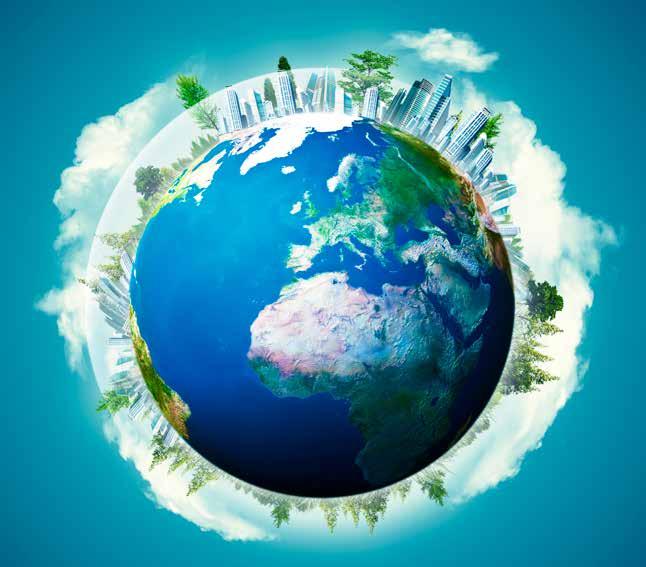
Circular economy
Description of topic and its relevance
Scope of the topic
Commitment to the rational consumption of materials by implementing recycling and reuse policies with the aim of reducing waste and adverse impacts on the environment. As a result of the recyclability and durability properties of steel, the Group has adopted a business model based on the circular economy concept, making it possible to minimise the use of virgin natural resources and enhance the value of the residues produced.
At Alfa Acciai and Acciaierie di Sicilia, circular economy underpins the steelmaking process, which is complemented by the verticalization of finished products (reinforcing steel) and semi-finished products (wire rod) from the other Group companies.
The scope includes all Group companies. The most significant impact in terms of raw materials and residues are to be attributed to the Group’s steel mills, given that the impact from the other companies in the Group is far less.
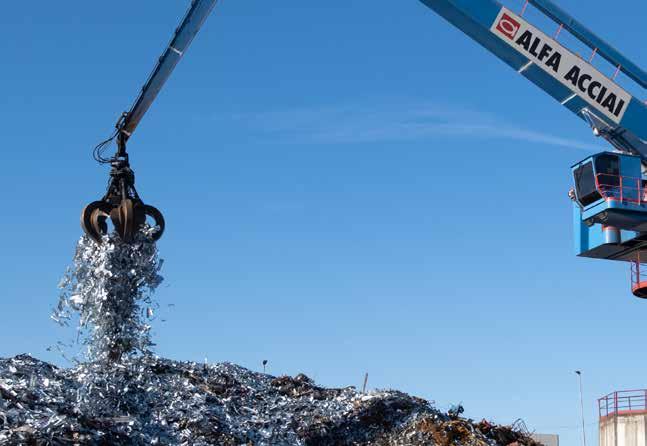
Steel never wears out, it can be recovered indefinitely through recycling processes
At the end of their useful life, steel products can be recovered 100% and countless times through remelting. Without losing quality and without any degradation in mechanical properties, to such an extent that they cannot be distinguished from new material. The life cycle of steel is potentially endless, making it a real “permanent resource”, which is essential for the development of a sustainable economy. For these reasons, it is the most recycled material in the world today.
The diagram below gives a concise and clear representation of the endless steel recycling chain.
THE CYCLE STARTS OVER AND OVER AGAIN
SEPARATE COLLECTION
Steel to be recovered is sent for separate collection
STEEL RECYCLING
Steel is the most recyclable and recycled material in the world
AND SORTING
Collected material is sorted and, if necessary, pressed/shredded at authorised facilities
STEEL MILL
Collected/shredded material is delivered to the steel mills
New products are obtained from the melting of recycled steel
%
MELTING
Steel is then melted to produce castings
The recycling rate is the percentage of materials that are discarded, recovered and reused. This rate is very high for steel, but varies from product to product. Alfa Acciai Group companies have a minimum post-consumer recycled content in their products of more than 97% (ISO 14021 certification).
For every tonne of steel produced, the EAF industry produces a benefit for future generations, who will not have to produce new material from iron ore (integrated steel mill production). In fact, this industry represents one of the oldest and most consolidated circular economies, guaranteeing in Italy and Europe the recovery of tens of millions of tonnes of ferrous scrap that would otherwise not be valued.
The RICREA consortium (National Consortium for the Recycling and Recovery of Steel Packaging) aims to guarantee the recycling of used steel packaging. Sharing this vision, Alfa Acciai and Acciaierie di Sicilia support and collaborate with it by making available certain data, proven by documentary checks, and by allowing product analysis campaigns to be carried out in their facilities in order to determine the quantities of packaging present in the scrap collected and recycled.
The Group’s steelmaking companies do not limit themselves to giving new life to ferrous scrap, which is intrinsic in EAF technology, but has always been committed to finding new circular processes, such as the recovery of black slag as described below.
In short, the Group’s approach is to systematically apply the circular economy concept, with the aim of reusing, recovering and recycling every material resulting from the various production processes.
As a result of a controlled process of its formation and subsequent solidification, the black slag generated during the melting of ferrous scrap in the electric arc furnace is crushed, deferrized and screened to become, as a by-product, a high-performance marketable material, called Sinstone®.
By controlling the process, it is possible to achieve certain chemical and geotechnical characteristics that make slag a material suitable for use in the construction and civil engineering sectors in place of materials of natural origin (quarry aggregates), thus saving non-renewable natural resources.
Sinstone® bears the CE 2+ mark and is sold in compliance with the UNI 13242 standard, registered at European level in accordance with the REACH regulation and also has EPD certification.

The most important raw material in quantitative terms for steel production is ferrous scrap originating from Italy or abroad, which is classified as waste or non-waste (End of Waste).

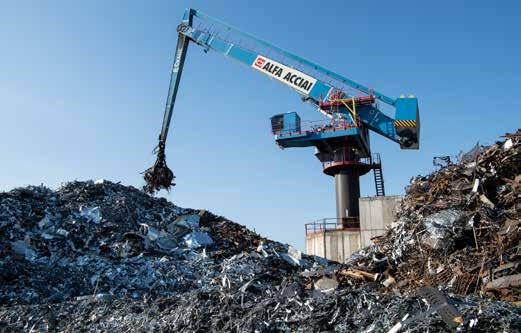
Alfa Acciai and Acciaierie di Sicilia conduct strict and severe inspections of scrap metal entering the plant through documentary checks, under the supervision and assistance of the Environment Service, as well as visual and radiometric checks, in accordance with the regulations in force7.
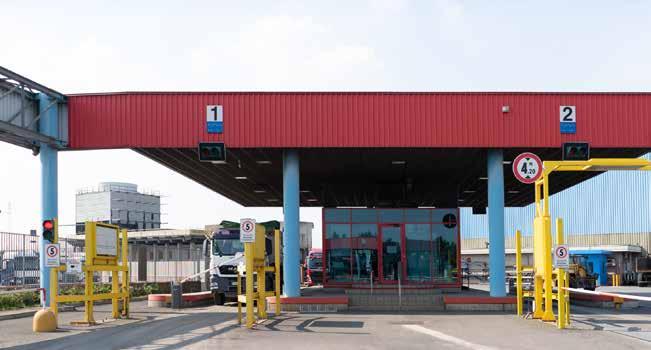
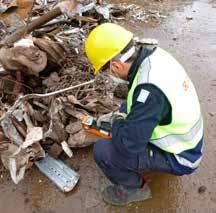
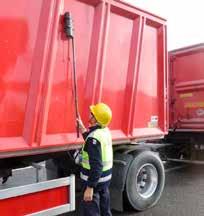
Among the scrap acceptance and inspection operations, the most important one is a strict check to ensure that incoming scrap is not contaminated with radioactive material. Since 1997, the Group has been implementing an extensive and complete detection system covering the entire production activity in order to avoid the accidental melting of radioactive material.
A summary of the incoming raw materials acceptance process is given in the diagram below:
7) Further details on scrap procurement and radiometric source detection can be found in the section entitled "Scrap incoming inspection" and the Chapter "X-ray monitoring at the plant" in the Alfa Acciai 2021 Observatory Report. Additional information on the supplier selection and assessment process is also available in Chapter 5.
SUPPLIER QUALIFICATION
INCOMING MATERIALS
PASSAGGIO SULLA PESA CROSSING THE WEIGHBRIDGE MATERIALS CHECK-IN
RAW MATERIALS QUALIFICATION
OTHER RAW MATERIALS LIME FERROALLOYS MAGNESITE COKE GAS ADDITIVES CARBON REFRACTORY MATERIALS OILS
As illustrated in the diagram, in addition to the various types of scrap, the Group uses other materials that are essential elements for its several production processes. In particular, the following tables highlight the quantity of raw materials and process materials consumed in 2019-2020, where the division between renewable and non-renewable materials required by GRIs is not applicable in the steel industry. Indeed, the resources required
are not generated in a short period of time. Nevertheless, the Group is committed to containing environmental impact and reducing the consumption of resources, making extensive use of recycled raw materials.
In general, there has been a decrease in materials consumed due to the slowdown in production during the peak of the pandemic.
The manufacture of steel requires not only raw materials but also process materials which are crucial to production. For example, additives and process agents help to form and regulate the composition of the slag which protects the steel bath; refractory materials protect the EAFs and ladles and reduce heat loss; inert gases are used to stir the bath to homogenise it. Basically, these materials are essential for a quality product.
8)This is the raw material used by the Group companies that verticalize production, i.e., Alfa Derivati, Ferroberica and Tecnofil. 9)Includes: electrodes – coal – deoxidisers – desulphurisers – calcium aluminates – other additives.
With regard to coal consumption, the target for the next few years is to replace coal with equivalent materials (SRA - Secondary Reducing Agent) originating from the recycling of post-consumer plastics complying with the UNIPLAST-UNI 10667 standard for use as a reducing agent in iron ore oxidation reactions. A preliminary test run was conducted in 2020 and will be implemented and further developed in 2021.
In addition to scrap, which is the main input for the process, another recovered material used is spent refractory material coming from the demolition of the melting furnace, which is fed back into the production cycle as
a partial raw material substitute. The raw material to be replaced is magnesite, which is used in the Electric Arc Furnace (EAF) as a process additive in the melting. Their reuse in the furnace has no negative impact on the environment; indeed, it preserves the consumption of new natural resources.
Looking at the figures for recycled raw materials for the two steelmaking companies, the percentage of use is 95% in 2020, in line with the 2019.
This result highlights the Group’s circular vocation with a very high portion of recycled materials entering its production process.
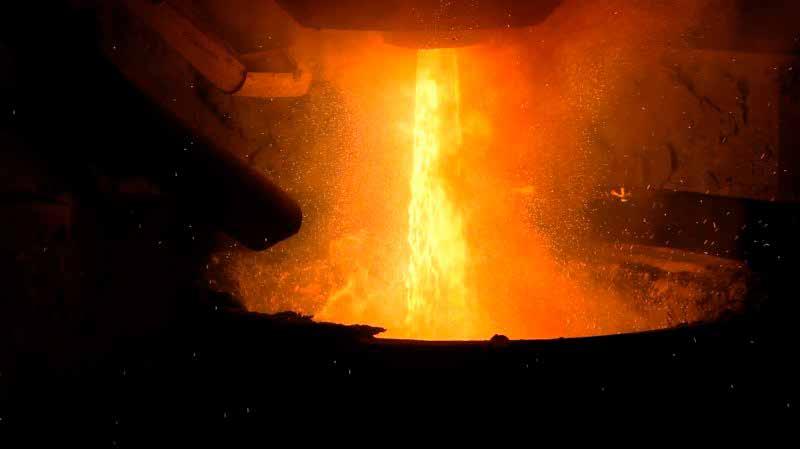
10) GRI 301-2 was calculated on the basis of the quantities of raw materials used for Alfa Acciai and Acciaierie di Sicilia alone. The figure differs from that obtained from UNI EN ISO 14021 certification (98.6% at Alfa Acciai and 97% at Acciaieria di Sicilia) as the GRI (301-1 e 301-2) uses calculation methods other than those used by the UNI standard.
GRI 306-1; GRI 306-2; GRI 306-3; GRI 306-4; GRI 306-5
The Group has always pursued a strategy based on responsible and, in particular, sustainable production, focusing intently not only on the use of resources but also on making the most of production waste, in line with the principles of a circular economy.
AAlfa Acciai and Acciaierie di Sicilia base their production process on circular economy principles by melting ferrous scrap in electric arc furnaces, to reuse it and give it new life. Steel manufacturing also creates residue which often enters the value chain in other circular economies, with the aim of achieving an increasingly lower percentage of material for disposal, promoting the recovery of materials.
Reducing the amount of waste produced is undoubtedly
one of the Group's main objectives, which are accompanied by a series of actions that aim to optimise waste where it can't be minimised, encouraging recovery rather than landfilling.
Over the years the Group has been committed to this issue and has achieved significant results. For example, Alfa Acciai alone, which generates more than 80% of the Group’s entire waste, progressed from 15% of waste being recycled in 2017 to 59% in 2020.
Total waste generated (t)
As illustrated in the diagram below, other circular sub-economies resulting from the steel manufacturing process are connected to the ferrous scrap circular economy:
▶ black slag from the steel manufacturing process is sent to recovery systems to obtain an inert material that can be used to replace virgin materials mined from quarries, thereby preserving natural resources;
▶ thanks to sorting operations, non-ferrous metals (aluminium, copper etc.) are obtained from the scrap shredding process, and can be put to good use in other external production cycles;
▶ metal dust with a high zinc content is generated from the smelting process, which enters other circular production cycles designed to extract zinc metal, a highly precious element for our economy;
▶ mill scale is generated from rolling processes, which is basically an iron oxide that is used to produce cement clinker;
▶ recovering refractory materials is also important for making the most of production waste, as it preserves important natural resources.
GRAPHITE
GRAPHITE
The Group is continually looking for new opportunities that can further optimise the recovery of all production waste in accordance with legislation. With the support of various departments (such as environment departments), the Group systematically monitors data on waste. This data is analysed by the company management system which, along with rendering appli-
cations, can keep incoming and outgoing waste under control. Finally, monthly meetings take place to share data on the flows that are most significant from a volume or cost perspective. The table below contains amounts of waste generated, split into hazardous and non-hazardous waste for the years 2019 and 2020.
In line with the reporting standards adopted (GRI standards), a breakdown of the waste produced is shown in the table below, highlighting the quantities sent for
recovery and those for disposal, with an indication of the specific process used. All processes are carried out at external sites.
11) All waste intended for recovery comes under to “other recovery processes”, in accordance with GRI 306-3, and it is managed by external sites.
The Group's commitment to waste recovery also applies to hazardous waste. In 2020, the quantities sent for recovery increased by 2 percentage points (from 84% to
86%) compared to the total amount of hazardous waste generated by production processes.
Steelmaking facilities, which melt scrap using an electric arc furnace (EAF), are particularly energy-intensive and Alfa Acciai Group companies have set ambitious targets to reduce energy consumption from fossil fuels and will strive to increase the amount of energy from renewable sources.
Energy efficiency
Description of the topic and its relevance
Scope of the topic
Implementation of initiatives geared towards optimising the use of energy resources and reducing consumption, e.g., through energy recovery processes based on the exploitation of heat generated by industrial facilities.
The steel industry and downstream processes, such as hot rolling, are highly energy intensive and require heat from electricity and fossil fuels. Commitments to reducing consumption and replace fossil fuels with other renewable and sustainable sources make this issue of great interest to the Group.
Electricity and other energy sources have a local reach that is managed and supervised by the Energy Manager, who works with the staff involved in the production processes.
Energy efficiency affects all Group companies, but the most significant impact in terms of consumption and energy efficiency are attributable to the two steel mills, while the other companies that verticalize products (rebar and wire rod) have a lower impact by several orders of magnitude.
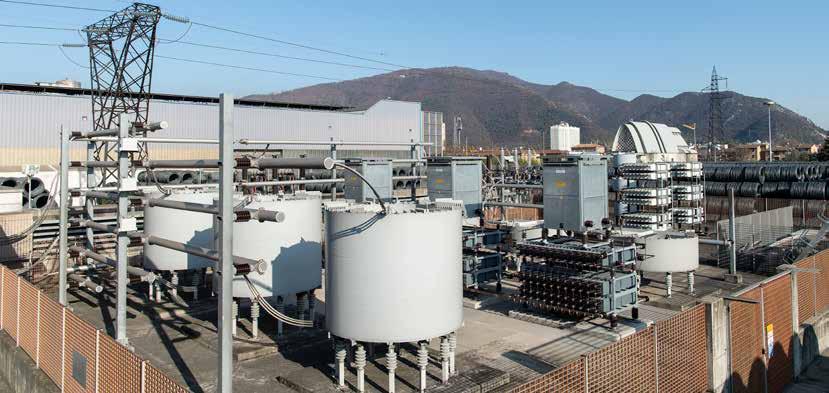
The main source of energy required to melt scrap is electricity, which accounts for the Group's main energy consumption, followed by the combustion of methane, which is a much smaller source. Electricity consumption is also necessary for auxiliary processes, such as environmental monitoring and production services. With regard to the hot rolling of billets produced by the steel mill, the
main source of energy is instead methane, which is used to power the billet heating furnaces, where electricity consumption is secondary.
Lastly, the consumption of Diesel fuel to power vehicles and the means used to handle the finished or semi-finished product is minimal, as is the consumption of LPG for cutting rebar to size.
A comparison between 2019 and 2020 shows a reduction in all consumption items over the last year. Overall, the reduction in consumption amounted to 12% and is linked to all the energy efficiency initiatives put in place by the various production sites, on the one hand, and the drop in production following the outbreak of the Covid-19 pandemic on the other. 7,000,000 6,000,000 5,000,000
12) The figure is net of grid losses and reflects the electricity actually consumed.
Energy consumption decreased in line with shrinkage in production. Indeed, the energy intensity data, which compares total energy consumption with total finished/ processed products, a stability in energy consumption
per finished/processed tonne can be actually seen as a result of improved energy efficiency, since the Covid period stopped production activities, but not necessarily all auxiliary services.
Alfa Acciai commenced experimental activities in 2019, designed to reduce the site's energy consumption. If the results produced are positive, these activities will deliver benefits from 2021 onwards, and include:
▶ reference pilot system to recover heat from the steel mill, converted into an industrial plant up to 20MWt to transfer energy to the Brescia district heating network;
▶ better management of the scrap used in the charge mix, with variation depending on the steel grade produced and with feedback in relation to the steel analysis;
▶ optimisation of electrical parameters to make energy transmission more efficient and cooling calibrated to avoid excessive heat;
▶ closed loop control of the chemical setting and lime to
vary the chemical formulation, i.e., the amount of oxygen, methane, carbon and lime put into the smelting furnace in relation to the real time result of the chemical analysis of the steel;
▶ increase in steel tapped into the ladle with resulting increase in the productivity of smelting furnaces and the respective energy consumption efficiency;
▶ P-FMEA project, including a thorough analysis of all causes of inefficiencies and stoppages;
▶ system for regulating the flow rate of electrode cooling water to optimise consumption of the actual electrodes;
▶ continuous casting optimisation to cast with a lower manganese content than in the past.
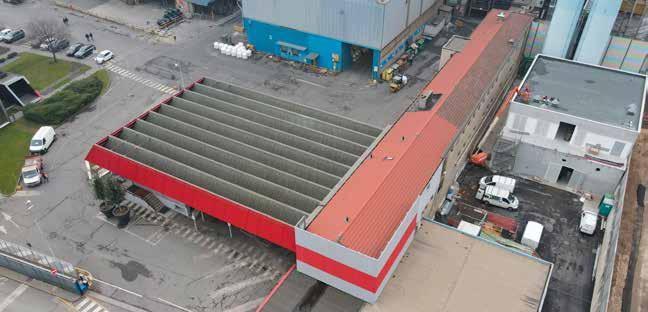
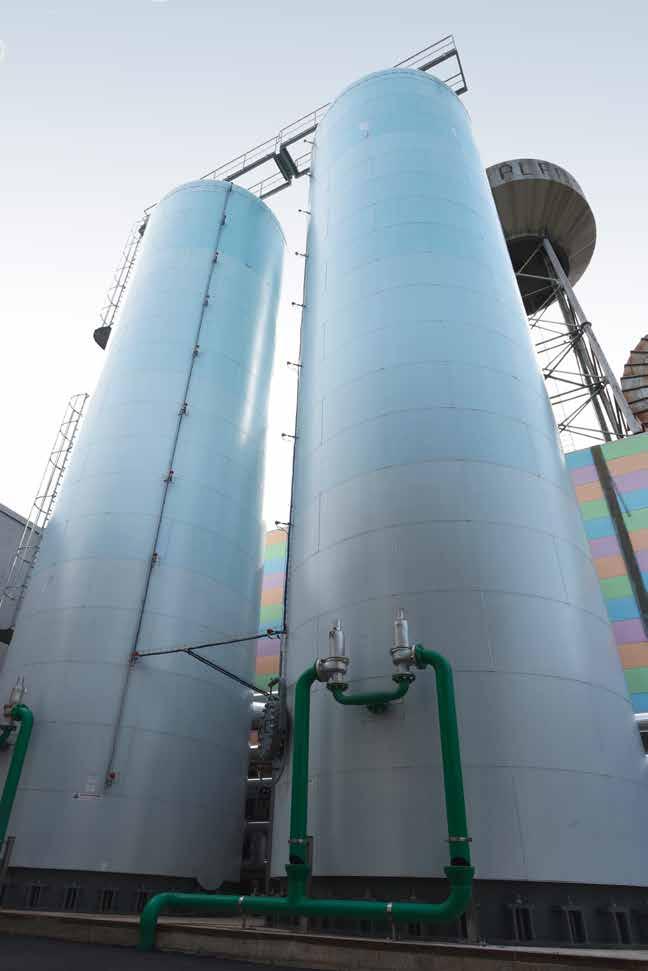
Following research and development carried out in recent years with the support of Lombardy Regional Government, and in partnership with A2A Calore e Servizi, Brescia University and District Heating Planet, an innovative and efficient system has been implemented to recover heat from the offgas plant cooling system for one of the furnaces at the steel mill, and in 2021 the feasibility of transferring energy to the Brescia district heating network was confirmed. The opportunity for Alfa Acciai to initiate significant industrial symbiosis with A2A, the major Italian multi-utility, has therefore been confirmed, involving heat recovery with high potential. The pilot system converted into an industrial system following further major investment, will enable energy recovery up to 20 MWt for an amount of approximately 60,000 MWh/year, equivalent to the requirements of 6,000 identical flats.
More specifically, the heat made available will come from the cooling water circuit for Alfa Acciai's industrial processes, which was redesigned to become an important source of heat for the district heating network. A sophisticated control system will ensure total heat recovery via predictive algorithms that follow the profile of the process at the steel mill, which is connected to a heat exchange unit with very high efficiency, variable flow pumps and large energy storage units.
As a result, a special high-efficiency energy exchange station was set up on the Alfa Acciai site, which connects its process to the A2A district heating network and ensures complete balance between the availability of heat generated from steel mill furnaces that smelt the steel at 1600 degrees, and the district heating network and its peripheral systems. The pilot system has therefore confirmed the expected energy targets without significantly interfering with the production process.
Fully operational industrial heat exchange is planned for the 2022-2023 winter season. Following energy recovery, the network operator can reduce the use of energy production stations powered by fossil fuels, resulting in obvious environmental benefits such as a significant reduction in carbon dioxide and particulate, and Alfa Acciai will be reducing the emission of heat into the atmosphere and the consumption of makeup water.
Just like all other steel mills with electric arc furnaces, Alfa Acciai represents an ethical example of circularity by recycling scrap, and with this project the company is moving towards energy circularity, by capitalising on heat that would otherwise be released into the atmosphere, and contributing to the decarbonisation of urban life.
~20 ~60,000 ~6,000
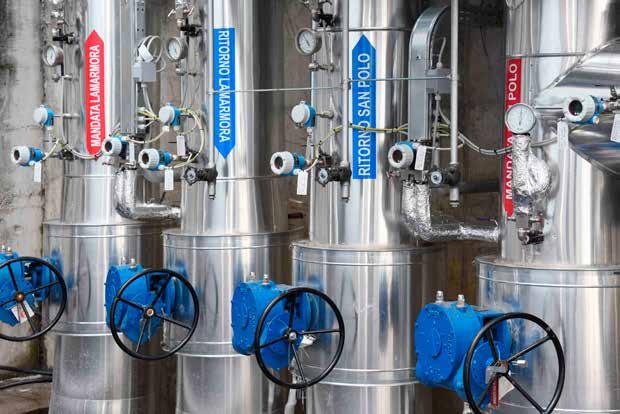
Close-up of the hub interconnecting with the district heating network.
Moreover, as regards Acciaierie di Sicilia, an improvement in the electricity consumed in the smelting process of the steel mill was recorded following the optimisation of the scrap mix of the charge. Whereas, as far as the rolling process is concerned, a new operational practice was introduced at the rolling mill's reheating furnace, whereby billets are loaded more directly, i.e., hotter, which led to a significant reduction in the consumption of methane in the furnace itself.
Tecnofil instead took the following initiatives:
▶ In 2019, it upgraded the compressed air production plant by installing latest-generation fixed-capacity and variable flow inverter equipment, which made it possible to reduce the number of machines installed for the same amount of compressed air produced;
▶ In 2019-2020, it made a widespread installation of LED lighting, which affected all production departments, significantly improving the quality of illumination of the processing areas and allowing considerable savings in electricity.
▶ In 2020, process automation was enhanced with a dedicated software and works commenced to revamp the dry drawing machines, which entailed the replacement of the main motors, switching from direct current to alternating current with inverter control technology. This latter innovation has resulted so far in nearly 70% energy savings on the revamped installation.
Last but not least, in 2020, Ferroberica succeeded in reducing LPG consumption of up to 20% as compared to 2019. This saving is a result of the fact that LPG was mainly used to cut the material (rebar) using oxyfuel, while in 2020, following growing market demand, the company switched to cold cutting, using a shear, which does not require LPG. In addition, a new type of cold cutting by band saw is being planned in Vicenza, which has been in service in Montirone since 2020, and this will further save energy.
Description of topic and its relevance
Compliance with environmental regulations on polluting emissions generated, directly or indirectly, by the companies' production activities, including energy consumption, and initiation of a process aimed at decarbonisation.
The decarbonisation challenge is undoubtedly the biggest one the steel industry is facing; the main objective is to implement energy transition processes towards more efficient and lower impact models.
Scope of the topic
Atmospheric emissions have a local perimeter that is managed and controlled by the organisation through the synergy between the operational staff and the environment offices, which provide support in monitoring and controlling emission-related aspects. This topic concerns all Group companies, but the most significant impacts in terms of emissions are attributable to the Group's two steel mills, while the other companies that verticalize products (reinforcing steel and wire rod) have a much lower impact, even by several orders of magnitude.
In line with the Paris Agreement, the European Union has decided to increase its climate ambition and has committed to reducing greenhouse gas emissions by at least 55% by 2030 compared to 1990 levels and being climate neutral by 2050.
Alfa Acciai and Acciaierie di Sicilia, as EAF steel producers, are among the companies subject to the European Union Emissions Trading System (EU-ETS), thus they are constantly committed to introducing actions aimed at reducing the CO2 emitted by their production processes, so as to make their business increasingly sustainable.
In particular, the EU-ETS operates according to the principle of "Cap and Trade", i.e., a limit is set on the maximum amount of CO2 that can be emitted by plants covered by the system at European level. Within this limit, companies can buy or sell allowances according to their needs. Once a year, all companies participating in the EU-ETS have to report the tonnes of CO2
emitted. A limited number of emission allowances are allocated free of charge to certain companies, based on harmonised allocation rules applied across Europe. Companies that do not receive emission allowances free of charge or where the allowances received are not sufficient to cover their emissions are required to purchase emission allowances at auction or from other companies.
In the third ETS period (2013-2020), the Group did not need to purchase allowances in addition to those allocated as a result of its plant performance.
The emissions monitored and reported by Alfa Acciai Group companies are divided into Scope 1 and Scope 2 categories. Specifically, according to the definition of the Environmental Protection Agency (EPA), Scope 1 emissions are direct greenhouse gas (GHG) emissions that are generated by sources controlled or owned by an organisation (e.g., emissions associated with the combustion of fuels in boilers, furnaces, vehicles).
Scope 2 emissions are indirect GHG emissions associated with the purchase of electricity, steam, heat or cooling. Although Scope 2 emissions physically occur at the facility where they are generated, they are accounted for in an organisation's GHG inventory because they are the result of the organisation's use of energy.
The Group's direct greenhouse gas emissions (Scope 1) for 2019-2020 are shown below. Between 2020 and 2019 there was a 12% decrease in direct emissions, mainly related to the production shutdown during the year.
Similarly, indirect greenhouse gas emissions (Scope 2), calculated according to the “Location-Based” method”15, also decreased in 2020. In this case, the decrease accounted for 9%.
Emissions from purchased electricity (Scope 2) (tCO2e)
Taking a look at the Group's emissions intensity, it can be seen that there were no significant changes between 2019 and 2020 other than due to the increase in emission factors in the two-year period.
Indirect emissions from electricity (Scope 2 LB) account for two thirds of the Group’s total greenhouse gas emissions (tCO2eq).
15) The location-based method consists of calculating emissions from electricity consumption using national average emission factors for the different countries where electricity is purchased. For the year 2019, the value 327 gCO2/kWh and for 2020 the value 338.54 gCO2/kWh were considered. These values are taken from the Association of Issuing Bodies (2019 report and 2020 report).
Direct emissions (Scope 1)
Indirect emissions (Scope 2)
We would like to highlight how other initiatives can directly contribute to the reduction of CO2 emissions at a global level, and this is why the Group is also committed to reducing greenhouse gas emissions generated by transport. As a matter of fact, in Alfa Acciai, a booking scrap supply time-slot system has been in operation since 2020 (extended to process raw materials in 2021 and the shipment of finished products in 2022), which allows a more regular flow of incoming goods, eliminating waiting times and queues of heavy vehicles, with the direct consequence of more sustainable transport with less environmental impact. The booking system will be replicated throughout 2021 at Acciaierie di Sicilia.
Further significant commitment of the Group in terms of sustainable logistics is the use of intermodal transport to and from Central Europe, thereby finished products are exported and raw materials are imported (ferrous scrap) via the Montirone railway link.
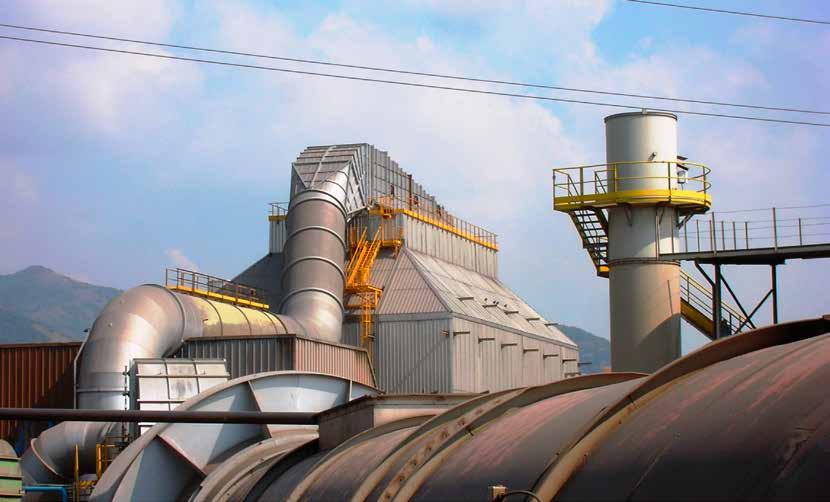
GRI 305-7
Atmospheric emissions from the stacks connected to the smelting and rolling process, especially for the Group’s two steel mills, account for almost all emissions. Emission management is a priority for the Group, which complies it in accordance with the environmental permits of
the various production sites, with a view to reducing the impact and complying with current legislation.
The Alfa Acciai Group regularly monitors significant emissions generated by its production processes, the total values of which are presented in the table below.
Metals (As, Cd, Cr, Ni, Cu, Sn, V, Co, Mn)
The total flow of emissions is calculated in the same way for all Group companies and is based exclusively on the analytical certificates of emissions as provided for in the monitoring and control plan of the various environmental authorisations in place.
With a view to continually improving environmental performance, the Group pays great attention to actions aimed at reducing and monitoring emissions through, for example, the regular implementation of:
▶ maintenance programmes for emission filtering plant systems that keep the equipment efficient, guaranteeing high extraction values at all times and consequently dust and metal emissions close to the technical minimum possible;
▶ an activated carbon injection system, in operation for about 10 years, which allows emission values to be considerably lower than the limit concentrations, in terms of micro-pollutants, such as PCDD/PCDF, PCB and IPA.
▶ a system called Dioxin Monitoring System (DMS), which consists of a permanent sampling device developed for the continuous monitoring of dioxin emissions;
▶ Operating practices that allow warmer loading of billets into the rolling mill's reheating furnaces, which saves methane and thus reduces combustion gas (NOx) emissions.
Other measures for continuous improvement of environmental performance are included in the Alfa Acciai 2021 Observatory Report.
All the measures put in place, combined with careful management of the environmental installations, make it possible to keep the concentrations of atmospheric emissions well below the limits set by the integrated environmental authorisations.
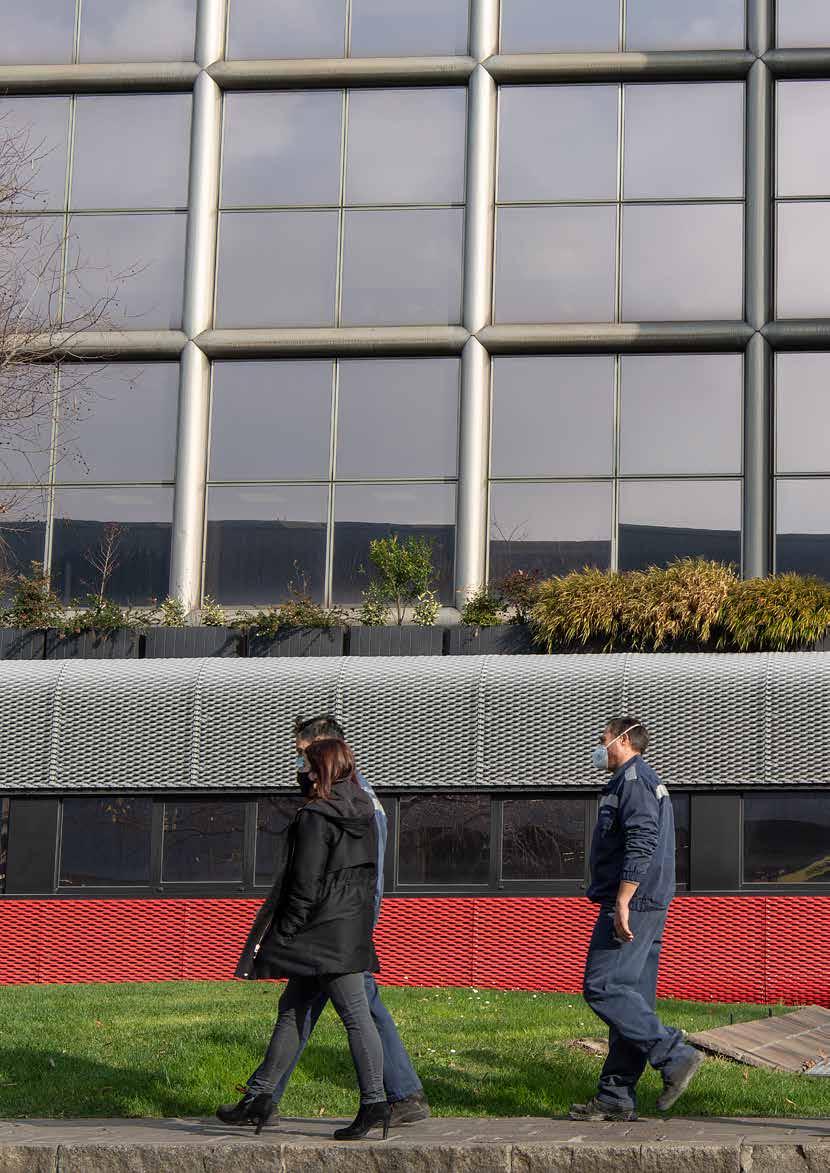
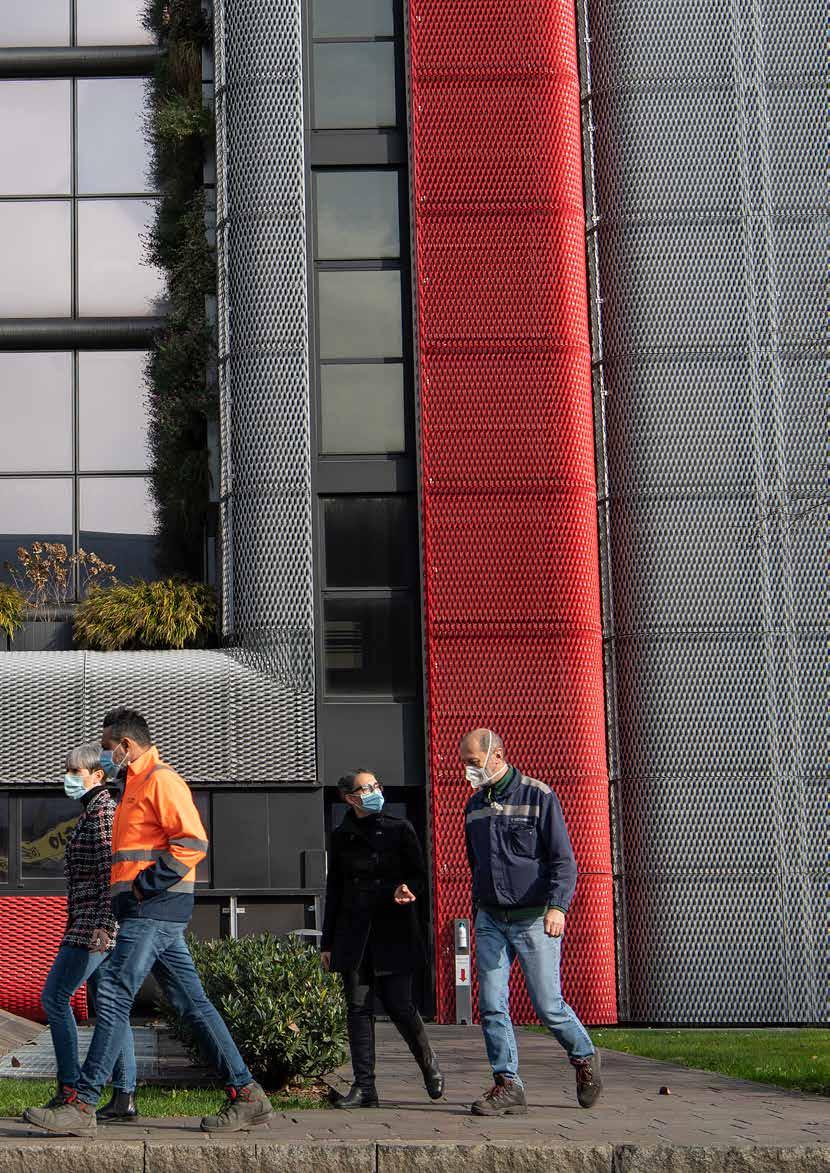
GRI 102-8; GRI 401-1
As stated in the Code of Ethics, employees and collaborators are essential for the success of a business. As a result, the Group's companies protect and develop human resources in order to improve and increase company assets and the competitiveness of the skills of each and every person.
Employment, health and well-being of workers
Description of topic and its relevance
Scope of the topic
Creating stable and long-lasting working relationships, based on dialogue and mutual listening, complying with the provisions of national and second-level bargain collective agreements, and which seek to generate a climate that is attentive to the health and wellbeing of employees, by offering welfare services and ongoing health monitoring.
Care for people is a fundamental issue for the Alfa Acciai Group as it helps to retain the loyalty of its employee, enhance the value of own resources and create lasting working relationships.
The consideration given to the individuals concerns all the Group's employees and collaborators, with special emphasis also on the workers of external companies, even during the pandemic period, as they are involved in prevention and health safety activities.
The consideration given to the individuals who make up the Alfa Acciai Group is based on the principles of the Code of Ethics, and is under the guidance of the Alfa Acciai HR Manager, with support provided for the other companies.
Taking a look at the composition of Group’s workforce, the total number of employees as at 31.12.2020 was 1,168, up by 28 compared to 2019 (+2%). Most of the staff belongs to Alfa Acciai (642 in 2020) and Acciaieria di Sicilia
(172 in 2020). The other 3 companies had less than 130 employees in 2020. namely: 120 Alfa Derivati, 109 Ferroberica and 125 Tecnofil.
As for contract types, the Group favours the form of open-ended contract, which is used for the majority of staff (97% in 2020), and full-time employment, used for 98% of staff in 2020. Through these employment con-
tracts the Group receives and offers stability, which ensures the presence of a stable and experienced workforce on the one hand and offers its employees a secure and permanent job on the other.
All group companies, except Alfa Acciai, also resort to temporary workers to overcome problems and unforeseen issues related to the recruitment and selection of personnel and to have an immediate response to the need to increase the workforce for urgent and unplanned orders, with the possible direct hiring at the end of the contract.
Furthermore, looking at staff turnovers, it can be seen that the restrictions and production shutdowns linked to the Covid-19 pandemic have led to a reduction in the number of staff in/out movements. Indeed, turnover rates have more than halved: the recruitment rate has decreased from 20% in 2019 to 9% in 2020, while the
layoff rate has dropped from 17% in 2019 to 7% in 2020. However, despite the events that characterised the year, 2020 also ended with an overall increase in the number of employees in Group companies (+2%). This increase is mainly related to the hiring of new personnel at Acciaieria di Sicilia and, as to Ferroberica, the opening and start-up of a new production plant in Montirone (BS), the changeover from management by an external company to employees at the Catania production unit and, in general, the integration of new technical and management resources in order to achieve the set production targets.
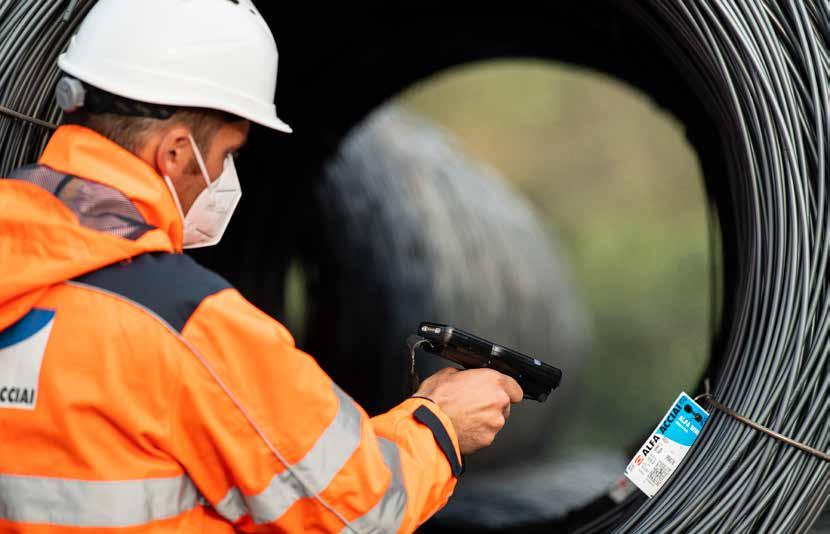
GRI
102-41; GRI 406-1
The Alfa Acciai Group feels that caring for employee wellbeing is essential for creating a corporate climate that values people and fosters a work-life balance.
The companies in the Alfa Acciai Group operate in a country that has accepted the fundamental conventions of the International Labour Organization (ILO) on human rights, and undertakes to comply with these protocols.
With regard to freedom of association and collective bargaining (ILO conventions 87 and 98), the Group is committed to continually engaging with union organisations, with the aim of ensuring compliance with standards and meeting the needs of company employees. In particular, collective bargaining applies to 100% of the Group's employees, and follows the stipulations of collective contracts for first and second level steelworkers. Therefore, employees have access to flexible benefits, as set out in these collective bargaining agreements.
The elimination of discrimination in the workplace (ILO conventions 100 and 111) is facilitated by the fact that the Alfa Acciai Group employees who work on production sites are of various nationalities, and operate in a climate of sound social integration and mutual respect. Such diversity represents added value for the Group, and no cases of discrimination were reported for the two years in question.
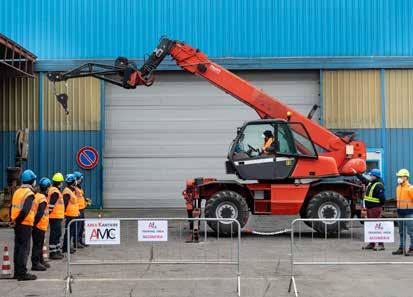
Furthermore, the Group undertakes to comply with the following conventions, even though they are not specifically relevant to the socio-economic context in which it operates:
▶ Elimination of forced or compulsory labour (ILO conventions 29 and 105);
▶ Abolition of child labour (ILO conventions 138 and 182);
In addition to the requirements of these conventions, the Group has adopted the following measures to give employees optimal working conditions:
▶ Average working week of less than 48 hours;
▶ At least four weeks of paid annual holiday entitlement;
▶ Parental leave (birth or adoption of a child) for at least 3 months;
▶ Minimum rest period of 35 consecutive hours for every seven-day period;
▶ Company canteen;
▶ Cultural, sports and recreational activities for employees and their families;
▶ Subsidies, loans or grants for training for employees and their families;
▶ Insurance or health schemes for employees and their families;
▶ Support schemes in the event of serious illness or accident in the family;
▶ Pension plans.
Finally, as part of ongoing improvement, the Group is aiming to increase involvement internally and offer Alfa-specific welfare programmes and services that meet the needs of employees. To this effect, the Group plans to further engage with personnel and carry out a survey to understand their specific needs and requirements.
GRI 404-3
The Group is committed to delivering regular training courses on different topics to facilitate professional development and update the skills and knowledge of personnel.
The training courses are generally outsourced and in the last two years16 have mainly covered the following topics:
▶ Health and safety
▶ Metallurgical and technical skills
▶ Computer skills
▶ English language
Furthermore, various employees have been selected due to their high potential and been given the chance to study for a Master's degree at Milan's Bocconi University, with the aim of further developing their managerial skills. In order to continually stimulate the growth and development of its people, the Group's companies regularly participate in specialist seminars, webinars and conferences
on specific steelmaking topics, or general business and economics-related subjects.
The Group considers professional development as central to business growth. For this reason, an employee performance appraisal process was set up in 2010, to analyse personnel work activities in the context of continuous improvement and professional development.
In total, 8% of all personnel are involved in the appraisal process, corresponding to all industrial area managers and initial tiers of personnel. This percentage rises to 28% if blue collars are excluded from the count, who represented 71% of the workforce in 2020 and are currently excluded from this formal appraisal process.
The safeguarding and enhancement of workers' health and safety is one of the Alfa Acciai Group's top priorities.
Occupational safety
Description of topic and its relevance
Promoting a culture of safety at all its sites and production facilities through specific training and awareness-raising activities, in compliance with local and sector laws and regulations. Constant attention to the prevention and protection of its employees in order to minimise their exposure to work-related risks (such as accidents, incidents and occupational diseases).
Per il Gruppo Alfa Acciai la sicurezza è al centro dell’attività di business e ciascuna società del Gruppo si impegna ad adottare nuove misure di sicurezza e ad ottenere certificazioni al fine di tutelare costantemente la salute dei propri dipendenti e di tutti i portatori d’interesse.
Scope of the topic
Safety is a key concern at every stage of a company's production process and in its relations with its employees, so it is a vital topic that affects all levels of the company in its daily work.

GRI 403-1; GRI 403-2; GRI 403-4; GRI 403-6; GRI 403-7
Over the years the business environment has been evolving at an ever-increasing pace, and the ability to adapt to change has been an essential value for the corporate sustainability of the Alfa Acciai Group.
As a result of analysing and continually monitoring the internal and external situation, and prompting from the parties involved, each company is providing resources, facilities and means to:
▶ plan processes and actions while considering risks and opportunities;
▶ effectively manage principal and supporting processes;
▶ systematically and continually check performance;
▶ pursue ongoing improvement.
The Alfa Acciai Group continually focuses on preventing and protecting its workers to reduce their exposure to occupational risk such as accidents and occupational diseases. To do this, it has adopted and implemented a Safety System as a tool for all stakeholders which ensures
that high levels of employee health and safety are pursued and achieved.
Given that the Alfa Acciai Group is made up of different legal entities, standard UNI EN ISO 45001 does not permit one management system. However, Alfa Acciai, Acciaierie di Sicilia, Alfa Derivati and Tecnofil have an OSH management system endorsed by accreditation bodies. Ferroberica has an OHS management system but does not currently have this certification.
The management system is maintained and improved in compliance with international ISO 45001 standards and, along with a structured delegation system that attributes powers and responsibilities, represents the main organisational tool for planning, implementing and checking the pillars of company strategy agreed with all stakeholders and organised into milestones and targets that are measurable and monitored regularly.
The current Management System is characterized by five key elements:
1 SETTING OBJECTIVES
4 RISK ASSESSMENT
2 RISK AND OPPORTUNITY APPROACH
5 MONITORING AND IMPROVING PLANS
3 CENTRAL ROLE OF WORKERS
1. When setting safety objectives and targets, employers, jointly with their delegates, take into account the Safety Policy, legal requirements, analysis of accidents occurred and any communications from stakeholders, the outcome of Risk Assessment and Management reviews, operational needs and possible effects on the organisation's public image. All these elements enable the Group to define clear, relevant and comprehensive objectives.
2. In order to ensure the Group’s ability to achieve its objectives, the Group has developed and is adopting an approach based on the Risk and Opportunity concept, and all companies share the following responsibilities with regard to safety:
▶ promoting continuous improvement by ensuring that the relevant Management17/Entities/Competent Departments achieve the safety objectives;
▶ ensuring that the implementation process of the Safety System is complied with in the various work phases;
▶ ensuring that the Entities and/or Functions under their direct control operate in compliance with the Safety System, contributing to its improvement.
3. As regards the role of workers in the management of safety aspects, they are also involved in the develop-
ment and implementation of the OSH system through the workers' safety representatives (WSR). Participation takes place through periodic meetings at intervals that vary from company to company and formal and informal meetings held on a daily basis.
4. The results of specific risk assessments, including the Risk Assessment Document pursuant to Legislative Decree 81/2008, are shared with managers and the WSR in order to inform workers on risks and the management of all accidents and events, by posting the relevant analyses on notice boards in company’s communal places.
5. For the purposes of monitoring OSH improvement plans and objectives, each Group company has set up periodic meetings at company level, during which the performance trends and process indicators are illustrated, any anomalous trends are analysed, opportunities for improvement are assessed and, in the event of significant deviations from the planned schedule, the competent Management establishes the corrections to be implemented, including any extensions.
The review of the company's improvement plans usually takes place annually during Management Reviews, and following possible critical events or situations.
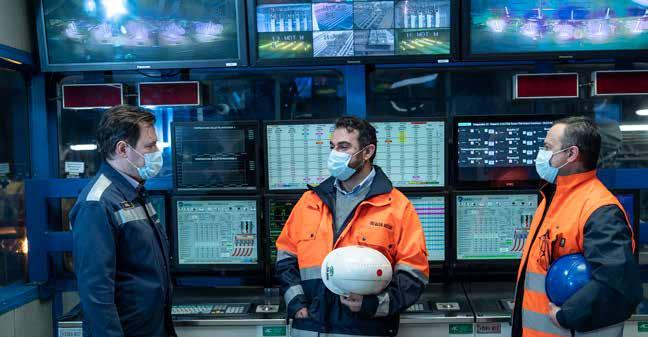
GRI 403-5
The Group feels that spreading a culture of safety in all its locations and production facilities is of the utmost importance.
This objective is pursued through specific education and training initiatives and activities to raise awareness, carried out in accordance with legislation, local regulations and industry standards.
Training activities are planned according to defined requirements and milestones, also using specific software (AlfaGest). Usually at the start of the year a training plan to be delivered throughout that year is defined, and this can be updated if necessary. The main courses provided are the following:
▶ Safety training for all workers (general and specific, according to the agreement Central Government and Regional Governments);
▶ Managers;
GRI 403-3
Another essential element of safety in the workplace is continually monitoring the health of employees. As a result, every company in the Group has a medical centre set up according to the specific characteristics of each company.
The task of company doctors, working with Health and Safety Managers, is to produce a company medical protocol that is developed on the basis of the results of specific risk assessments.
The risk of occupational disease is monitored, as a preventive measure, via regular medical examinations at the company medical centre, at intervals determined by the duties of the employee concerned.
▶ Supervisors;
▶ Fire-fighting;
▶ First aid;
▶ Use of equipment (forklift trucks, cranes, elevating platforms);
▶ Category III PPE.
The courses are held in-house and generally by accredited training schools and/or freelance technical teachers. In addition, ad hoc training courses and meetings are held for workers following the auditing of procedures and operating instructions, while newly recruited workers and those changing jobs are followed by experienced workers (tutors) who assess their learning and final comprehension.
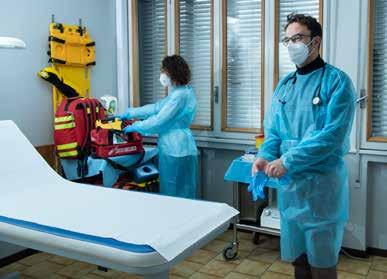
Furthermore, company doctors and healthcare staff are able to carry out first aid if necessary and apply minor dressings. Doctors may also request specialist examinations at hospital out-patient departments if necessary, and provide advice on various health issues suffered by employees.
During the pandemic, the medical centres have played a major role by continually working with Covid-19 Commissions to manage the health emergency.
GRI 403-9
The data on employee accidents over the last two years show a 19.7% decrease in 2020 compared to 2019, down from 44.84 to 36.02, respectively, given that the decrease in the injury rate is greater than the decrease in hours worked. Similarly, there was a decrease in non-employee
injuries despite a slight increase in hours worked, down from 12 injuries recorded in 2019 to 5 in 2020. In addition, thanks to the Group's investments and focus on the safety of its employees, there have been no fatalities for decades, and serious injuries are very rare.
In general, the main types of injuries reported in the last two years are:
▶ Contusion;
▶ Sprain;
▶ Foreign body in the eye;
▶ Bone fracture;
▶ Lacerated and contused wound;
▶ Burns from incandescent material.
Following each accident, hazards are identified and removed. Where this has not been possible, temporary or permanent improvement or containment measures are introduced.
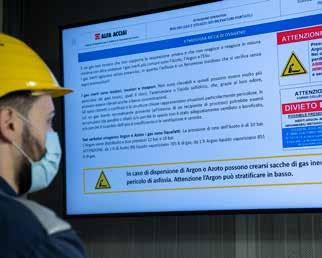
18) Injury rate are calculated as the ratio of accidents to hours worked multiplied by 1,000,000.
19) An injury is reported when it involves an absence of 24 hours or more.
20) A serious injury, as defined by GRI Standards, is an injury that results in an absence of 180 days or more.
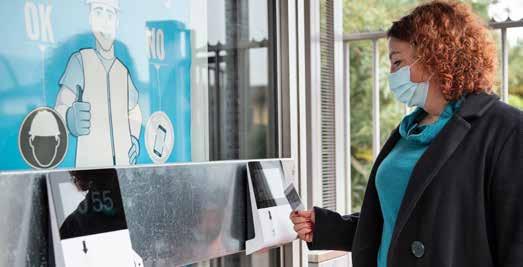
The first in Brescia and among the first in Italy, Alfa Acciai decided to shut down all operations well ahead the measures taken by the competent authorities at a national level, thus avoiding outbreaks at different sites and guaranteeing maximum safety in the workplace and the surrounding area, well aware that this meant a significant economic impact.
Risk Assessment documents have been updated to tackle the health emergency, describing the risk and the set of measures to prevent infection that are implemented through a specific protocol. From the assessment it emerged that the risk is low, as employees are not exposed professionally to infection, and the activities set out in the company protocol are designed to avoid the spread of the virus on the premises.
In particular, the document entitled "Applying the agreed protocol” (the Protocol) sets out the company rules established by the Alfa Acciai Group to tackle and contain the spread of the Covid-19 virus in work environments.
Every company in the Group has also set up a Commission to apply the agreed protocol, made up of the employer, prevention and protection service officers, and a workers' safety representative, which works alongside the company doctor to monitor how the pandemic is progressing and any critical issues relating to it in the business context, and to define relevant plans and prevention measures. The key action for achieving the best result from the Commission was to give it a significant decisionmaking role. Decisions are made using brainstorming sessions which help in determining the best options, with the direct participation of union representatives in the continuous management of business operations.
A plan to continually monitor the health of employees has been implemented, with tests (rapid antigen or PCR) being carried out since the start of the pandemic, making it possible to limit the spread of the virus within the Group's companies.
Joint surveys were carried out by the Commission in company departments, with all employees involved in foregoing some company benefits for the greater good of the health and safety of employees and their families. This has generated a self-governing mechanism based on the principle that personal wellbeing also depends on the wellbeing of other people, and has strengthened the sense of belonging in the company, viewed as a safe place, not based on mere feelings but on data based on the continuous monitoring of employees, and the principle that we spend a third of our day in this large family.
Finally, video conferencing systems and a TELEGRAM channel have been implemented to improve internal communication, and are an addition to the normal methods of communication such as e-mail and company noticeboards.
The Alfa Acciai Group feels that it is essential for local communities to view the presence of its companies in their areas as a benefit and opportunity, and not something to be endured.
Description of topic and its relevance
Scope of the topic
Development of projects aimed at listening to and involving local communities, encouraging collaboration and the creation of shared value.
The Alfa Acciai Group is aware of the direct and indirect impact that its own activities can have on the conditions, economic and social development and general well-being of the community, as well as the importance of social understanding of the communities in which it carries out its activities. For this reason, the Group is committed to operating in respect of local communities and supporting initiatives of cultural and social value.
The care for local communities involves all Group staff, who are committed to considering the needs of all stakeholders influenced by the Group's industrial activity.
The Alfa Acciai Group is an entity which, with its significant industrial sites, has to establish an ongoing dialogue with local communities. It allows the community to get closer to the Alfa Acciai world and know what happens within it, on the one hand, while encouraging in all possible ways a "value creation" process for local communities, on the other.
By way of example, one of the most positive effects that the various Group companies have on the surrounding area consists of offering people good jobs, typically characterised by higher wages than those in the market. In this regard, in 2016, the Group proved to be a workforce promoter at a local level through the takeover of the decommissioned steel mill “Stefana S.p.A.”, a company in composition with creditors, located in Montirone in the province of Brescia. More specifically, Alfa Acciai's operating system immediately hired the existing 69 employees, 10 white-collar workers and 59 blue-collar
workers, and the industrial site has now become the asset of the newly formed Alfa Montirone S.r.l., for which Alfa Acciai has undertaken major environmental reclamation works that are still in progress. As a result of the significant investments in renovation works, the site is now fully operational, hosting production and logistics departments of the Group companies, and the railway link has been reactivated, with the prospect of becoming a major logistics hub in the north of Italy.
Over the years, the entire management has developed a culture characterised by greater sensitivity to these issues, which has led the organisation to implement various initiatives aimed at developing and maintaining an ongoing dialogue as a basis for the creation of shared value.
The first instrument implemented to monitor and involve the local socio-economic texture is the Alfa Acciai Observatory described in Chapter 1, which is managed by
the Brescia Municipality's Councillor for the Environment and participated in by the neighbourhood councils and environmental associations. Through this committee, set up in 2007, the company "opens up" to the surrounding area and gathers the most varied requests, both as regards the impact generated by production activities to the outside and the support the company can provide through its organisation and resources.
As a result of the continuous dialogue with the local communities on the various issues, further initiatives have been developed and useful ideas have been implemented. For example, Alfa Acciai is a contributing member of the Fondazione Spedali Civili di Brescia, a trust set up in 2018 to keep alive the age-old tradition of solidarity that the people of Brescia have always attested to their city hospital and, as quoted in their 2020 corporate social responsibility report, "in this seemingly endless year, it has managed to be a valid partner of the hospital that, with its
thousands of patients admitted for Covid, has no equal in the western world".
For almost twenty years, the Group has been supporting Fondazione IDEA – an institute for research and prevention of depression and anxiety, with which the Group has organised awareness campaigns at various conferences and distributed thousands of booklets to middle school pupils in Brescia and the surrounding area to help them learn about the dark side of depression and drug addiction that have been afflicting the Brescia area so much lately.
In addition to supporting sporting activities, from football to rugby, other initiatives range from ad-hoc projects, such as interventions in the surrounding area to more far-reaching actions, such as recovery of heat to be used to provide district heating in Brescia, as reported in Chapter 3, not to mention activities to promote the legality of the ferrous scrap collection chain, adopting precise protocols that allow the complete control of flows.
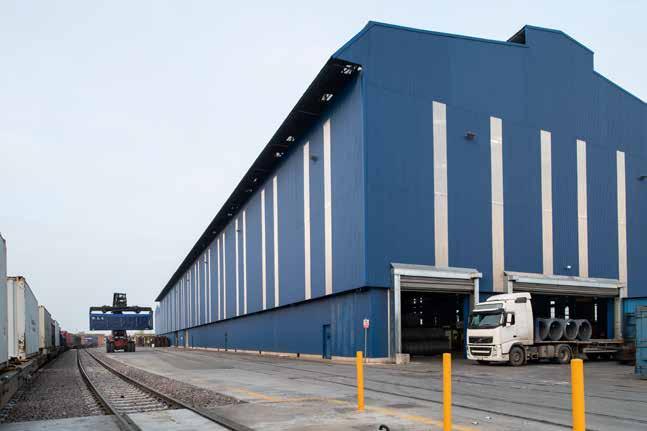
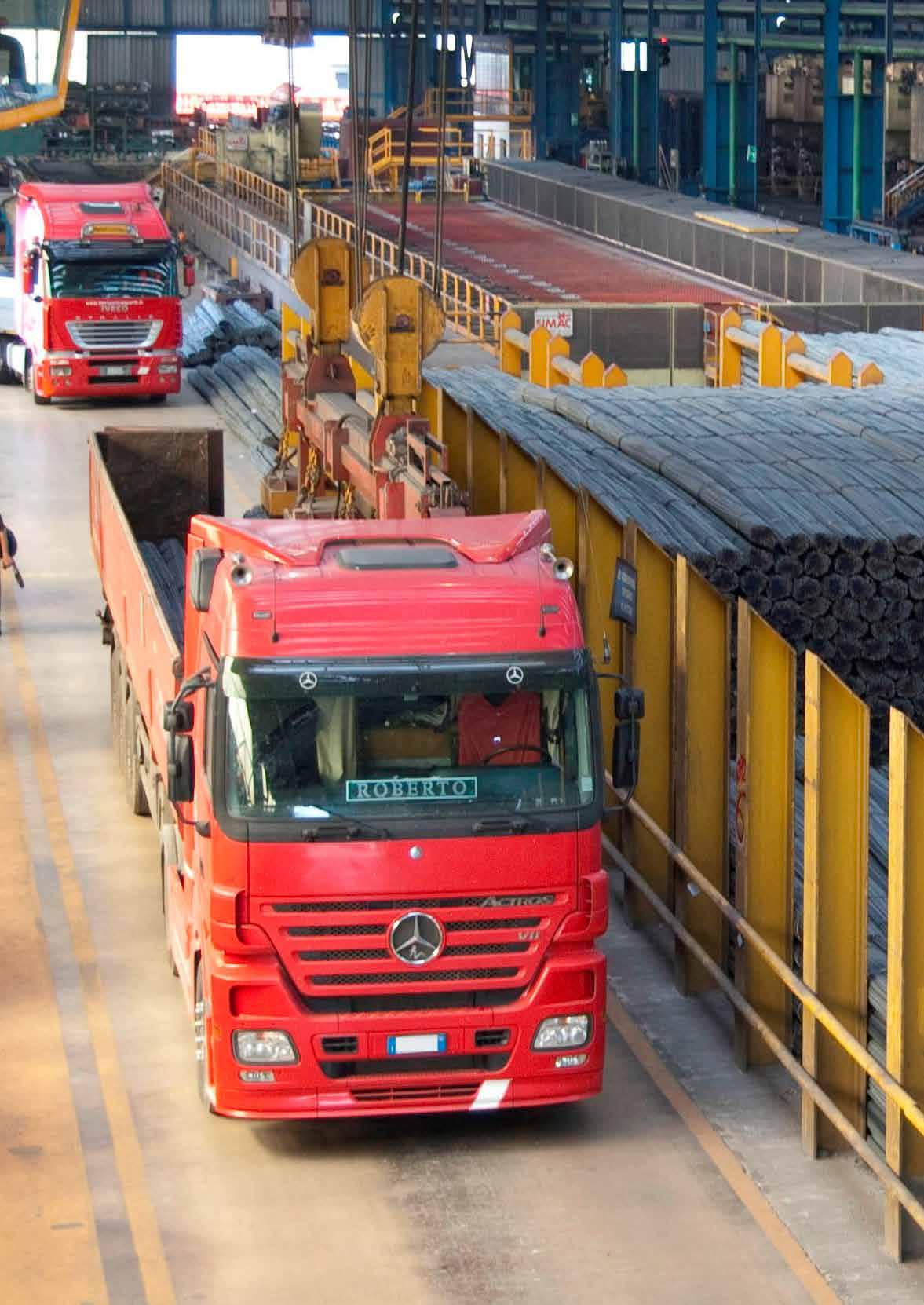
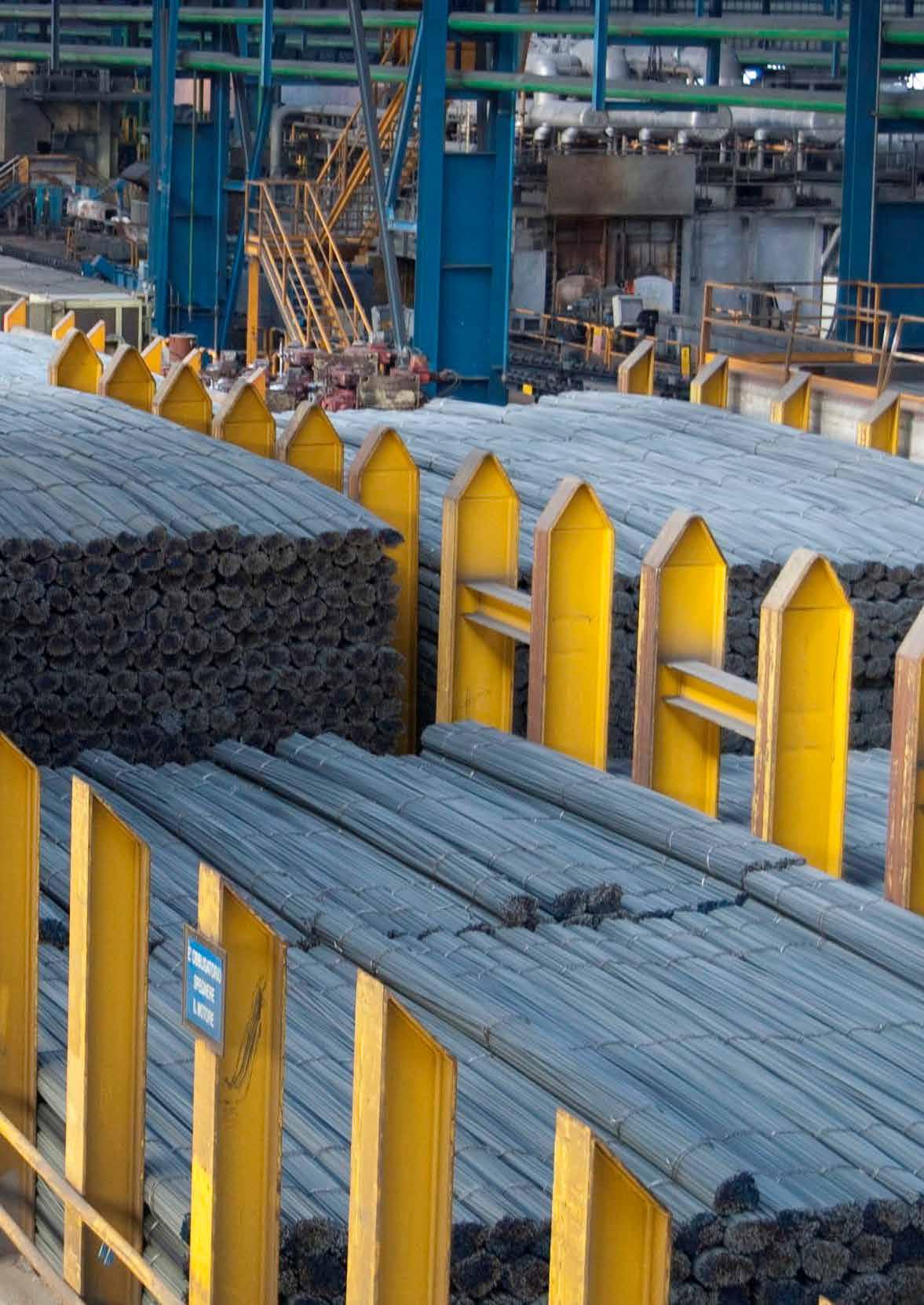
All companies in the Alfa Acciai Group have an integrated quality, environmental and safety system to ensure the maximum quality, reliability and competitiveness of our products for all stakeholders, safeguard employee health and wellbeing, and respect the environment, as outlined previously.
In line with the Group's vertical approach, the supply chain is involved at various levels in quality systems to optimise supply operations, ensure the repeatability of our processes, and guarantee customer satisfaction, commencing with the knowledge and expertise of our collaborators through to the planning, monitoring and ongoing improvement of processes.
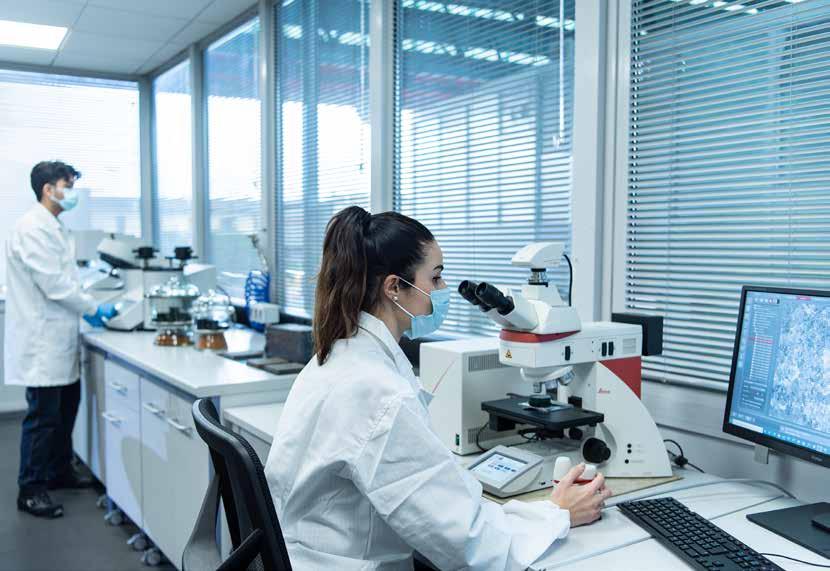
GRI 102-9; GRI 102-10
All companies in the Group are aware of the strategic importance of their supply chain, therefore selecting stable, reliable and ethically responsible partners is deemed crucial.
Description of the topic and its relevance
Scope of the topic
Selection, assessment and management of suppliers on the basis of technical and economic criteria, as well as constant monitoring of environmental and social factors in order to ensure a high level of sustainability performance and respect for human rights, including through a process of digital transformation that allows the optimisation of supply planning in a logic of forecasting and tracking, reducing economic and environmental costs in the procurement process.
The Group deems it essential to establish and develop positive ethical relationships with its stakeholders in order to achieve its objectives. Among the stakeholders identified by the Group, a crucial role is played by suppliers.
Suppliers consist of providers of goods and services and influence the whole business as they ensure its continuity and contribute to the quality and reliability of the products and services offered.
When managing relationships with suppliers the Group's companies continually refer to the principles set out in the Code of Ethics, where it is stated that such relationships must be based on the utmost professionalism and competence, in addition to compliance with legislation.
Furthermore, contact with parties implicated in activities which are illegal or do not meet requirements of professionalism and reliability is not tolerated, nor are relationships with third parties carrying out activities that are detrimental to the environment, health and human rights. For example, Ferroberica works with numerous companies to provide manufacturing, assembly, installation and haulage operations, and only uses suppliers reg-
istered on the White List held by the relevant authorities, which contains a list of suppliers and service providers who are not vulnerable to attempts of Mafia infiltration. Furthermore, the genuine nature of tenders relating to companies that regularly work with Ferroberica has been endorsed by the Certification Commission in the Marco Biagi Department of Economics (University of Modena and Reggio Emilia).
Particular focus must be put on the quality of goods and services provided and how they are implemented. Therefore, suppliers are selected on the basis of their credentials, considering factors such as quality, innovation, market reputation and environmental safeguard policies
It is worth noting that the structure of the supply chain has not undergone any significant changes in recent years, and that the number of suppliers with which the Alfa Acciai Group has come into contact in recent years is stable, thus proving continuity in business relations and relationships. The various suppliers can be grouped into two macro-classes:
• Suppliers of scrap and other raw materials;
• Suppliers of technology and materials.
• Outsourcers (suppliers performing part of the process);
• Contractors (suppliers operating on the site for installation work, ordinary and extraordinary maintenance, tenders and construction sites);
• Other service providers.
In order to achieve set strategic objectives, the Group applies specific policies and procedures when selecting and assessing suppliers, to identify those who are the most reliable. Illustrated below are the two separate supplier selection and assessment procedures used by the Group - one for scrap suppliers and the other for suppliers of other goods and services
The Procurement Department and the Quality Department are key to the procedure for selecting suppliers of goods and services. In particular, the Quality Department is responsible for approving suppliers in conjunction with the management teams involved and the Procurement Department, and for subsequently assessing supply progress.
The Procurement Department is responsible for defining purchasing strategies, formulating purchase orders, and managing any financial issues with suppliers.
In terms of control systems, the procedure for approving suppliers includes the possibility of carrying out an audit at the supplier's premises, to ascertain their ability to meet product and/or system requirements, or to examine
particular aspects of the supplier's organisation. Furthermore, a questionnaire may also be sent to suppliers, to verify compliance with quality standards.
With regard to a supplier's initial assessment, different checks are carried out depending on whether or not the supplier being considered has a quality system accredited by an officially recognised accreditation body. If suppliers pass the checks carried out, they are approved and added to the Vendor List (approval is valid for two years).
Finally, direct checks on products and/or services are carried out, and performance is verified during and after use, in order to establish and assess the supplier's progress over time.
GRI 308-1
Supplier authorisation is also required for scrap suppliers, and given the characteristics of the material involved, compliance with reference legislation and factors regarding the environment is also required, more specifically individual environmental authorisations, including the performance credentials that make them current

1
(guarantees, rights etc.), self-declarations on the compliance of the materials delivered, environmental certifications (ISO14001 and EoW) and transport permits.
The Scrap Supplier Authorisation process includes the steps outlined below:
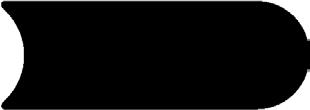
Gathering information and check the instrumentation used for radioactive monitoring, the type of equipment used in the production unit and the quality of the material on the site
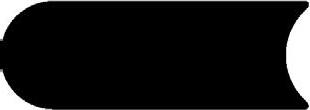
If the outcome of the inspection is satisfactory, an initial information checklist is filled in with the data collected from the supplier

3
2


GATHERING AND SENDING INFORMATION
Gathering the documentation required by the Qualification procedure and forwarding to the relevant departments

Following the analysis of the information obtained and the agreement of the relevant departments, the supplier is qualified and is included in the Suppliers' List

5
4


DOCUMENTATION ARCHIVE
Digital archiving of the documentation collected and periodically updated by the relevant departments


As was the case for previously qualified suppliers, all the new scrap suppliers of Alfa Acciai and Acciaierie di Sicilia, namely 43 in 2020 and 45 in 2019, were assessed in terms of environmental criteria and financial soundness, in accordance with the Qualification procedure.
The maintenance of scrap suppliers' and sub-suppliers' qualification requires:
▶ the permanence over time of the requirements for the purposes of their initial qualification;
▶ the conformity of the scrap delivered with the requirements for its acceptance, in compliance with the provisions of current legislation and the IEA (Integrated Environmental Authorisation).
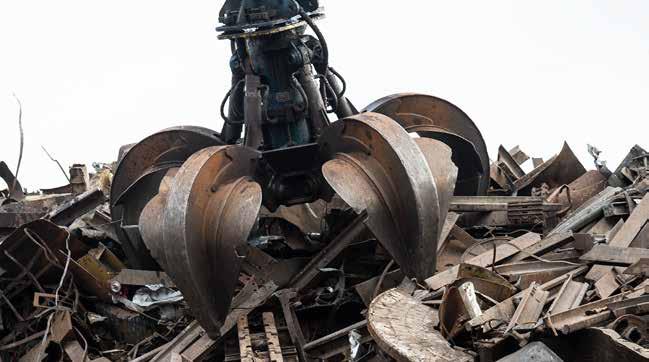
During the selection phase, Alfa Acciai undertakes to capitalise on resources in communities in the vicinity of production units, by seeking and selecting local suppliers where possible, to contribute to the socio-economic development of these areas.
More specifically, the evaluation considers suppliers as local if they are based in the same province as the operational premises of the different companies in the Group. The reference province for Alfa Acciai, Tecnofil and Alfa Derivati is Brescia, for Acciaierie di Sicilia it is Catania, and for Ferroberica it is Vicenza.
Overall, the percentage of expenditure with local suppliers at Group level was equivalent to 27% in 2020, which was higher than in 2019 when it was equivalent to 22%. In particular, Acciaierie di Sicilia has a very
healthy percentage of local suppliers, equivalent to 56% in 2020, which was also higher than in 2019 when it was 47%.
For the satisfaction of our customers, we have set ourselves the goal of always being the benchmark in the EAF market in terms of efficiency and quality of the production process.
Product quality and customer satisfaction
Description of the topic and its relevance
The marketing of products with high quality standards, manufactured using modern and safe production processes, which guarantee high reliability for customers in terms of both technical features and service, with a focus on customer satisfaction and loyalty.
The quality of products and service offered to customers is of fundamental importance for any company, especially in the case of a commodity such as steel: the consistency of product features and the willingness to promptly respond to customer requests are fundamental to establishing a relationship of sound cooperation that leads to a partnership.
The focus on quality knows no limits within the organisation as all company departments are involved in processes to improve and guarantee the quality of the product and service offered.
In terms of organisation, the Alfa Acciai Group has a Group Quality Manager and different Quality Managers for each Production Unit, or each operational company. All employees responsible for overseeing this area are in regular contact with each other and with the departments in their own unit or company to quickly resolve issues that transpire, analyse quality KPIs, and facilitate the flow of information and progress of operations relating to the product, process or systems. It should be noted that all companies that belong to the Alfa Acciai Group are aligned and organised in managing this aspect, and have signed a Quality Policy and hold ISO 9001 certification.
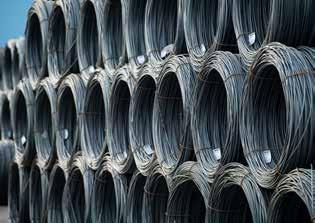
GRI 416-2; GRI 417-2
“ “
The α–ME production system at Alfa Acciai and Acciaierie di Sicilia is more than a simple quality system. The name alone conveys the strong connection in the group - everyone plays a part in the success of the ALFA brand and manufacturing excellence.
In order to strengthen Quality Management, the Alfa Acciai Group has adopted a production system called Alfa – Manufacturing Excellence (α–ME), a Quality Management System complying with UNI EN ISO 9001 and certified by IGQ - Italian Institute for Quality Assurance - and by IQNet - International Certification Network - which guarantees operation in accordance with clear operating procedures and instructions, constantly updated to the company's technical and organizational development, covering all operations: from the acceptance of incoming materials to process and finished product control and testing.
For the satisfaction of customers, with the α - ME production system, the Group strives to be always the benchmark in the EAF market in terms of production process efficiency and quality. In particular, the α-ME production
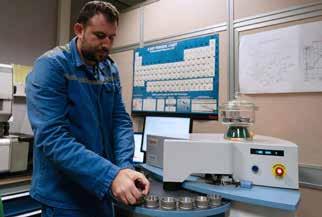
system is based on the following pillars:
▶ Continuous improvement based on scientific method, adopting KPI (Key Performance Indicators) metrics;
▶ Application of LEAN Production principles, in order to streamline the production process by reducing it only to the phases that create added value;
▶ Painstaking attention to detail, for the achievement of objectives and continuous improvement, without neglecting the relentless pursuit of lower costs;
▶ Involvement of all people at all levels, by defining roles and responsibilities;
▶ Active participation in UNISIDER (Italian steel unification body), for the drafting and development of technical standards both at national and European level;
▶ Thinking and acting fast to be always one step ahead.
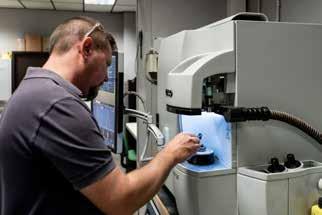
As a whole, the quality level of the Group's products, recognized both nationally and internationally, is guaranteed by the following factors:
• A system of Statistical Process Controls designed to avoid the possibility of committing errors, whereby at each crucial stage of the process there is a recorded control;
• The incoming material is sample tested by XRF (X-ray Fluorescence spectrometry) with laboratory and portable instruments, or by Atomic Absorption Spectrometry.
• In our labs we have state-of-the-art equipment and highly skilled technicians, and the finished product is mechanically tested in our own labs using modern machines to ensure compliance with mandatory standards;
• Ongoing investments to adopt the best technological solutions available in the electromechanical and steel sectors.
TECHNICAL ANALYSIS
• The chemical composition of each of our products is assured by Direct Optical Spectrometry (quantometer) and C-S (carbon-sulfur) and O-N (oxygen-nitrogen) analyzers;
• Micrographic analysis of the produced steel by means of optical microscopy;
• The metallurgical laboratory equipped with a very modern microscope can analyze automatically the steel phases and the inclusional grade, as well as perform a Failure Analysis for customers.
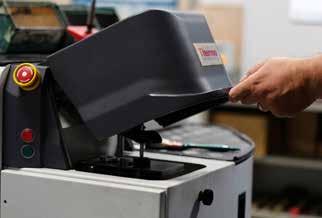

The soundness of the management systems in place, in addition to the inspections envisaged for system certification, is guaranteed by the numerous control procedures carried out both in-house and outside. During 2020, in Alfa Acciai alone, a total of 704 hours of inspections were carried out, including external system audits, external product audits, audits for the SINSTONE CE mark and internal audits. In addition, Group companies are also continually subjected to audits by national certifying
Over the years the Alfa Acciai Group has invested heavily in improving the quality of its products, through dedicated research and development activities, and investments in equipment, digitalisation and personnel training.
One of the results achieved by the Alfa Acciai R&D department in 2019 was the development of a new wire to control magnetic permeability for energy transport applications in the offshore industry. The magnetic coupling between the copper wire and iron strands placed to protect it is a factor to be considered when calculating
bodies for the marketing of reinforcing steel.
As a result of the continued focus on quality and monitoring of production processes, in the last two years the Alfa Acciai Group has not reported any non-compliance cases regarding the impact of the products sold on health and safety. Moreover, in the last two years, no non-conformities have been recorded regarding the information and labelling of products and services.
the cost-effectiveness of complex energy production and transport systems. A material with lower magnetic permeability (other than very costly stainless steel) generates fewer stray currents, making the system more cost-effective.
In the interests of the optimal management of the production cycle, to facilitate high product quality and end customer satisfaction, the Group decided to invest heavily in the digitalisation of processes and the industry 4.0 revolution, in order to interface production plants with information systems and tap into data automatically.
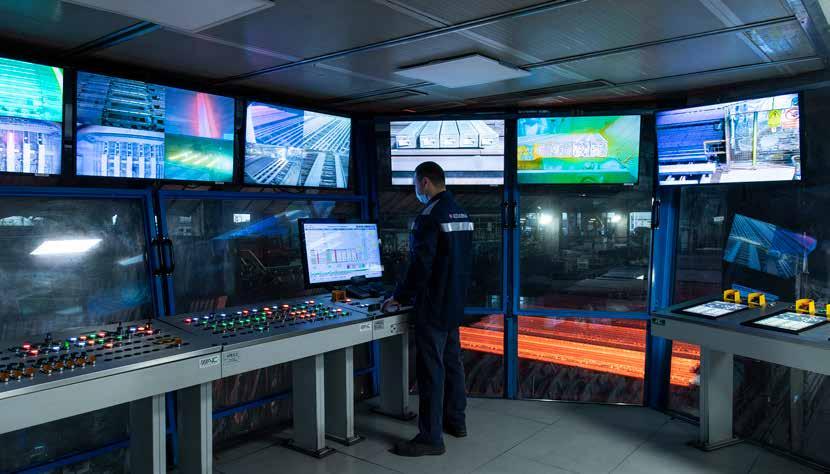
An investment project with SME.UP software house was launched in 2019 at Alfa Acciai to develop a computer system for production, product tracking and warehouse management. The following objectives have been achieved in collaboration with our suppliers and customers:
• improve demand forecasting to better meet market demand;
• optimize production planning and programming;
• optimize the planning of the raw materials procurement and the production of semi-finished products;
• manage the supply deliveries and track steel mill purchased materials;
• oversee the shipment of end products;
• improve warehouse management for enhanced customer service;
• ensure product quality and traceability;
Today, a unique tag with its QR-Code is attached to each item, whether it is a semi-finished product such as a billet or a bundle of wire rod, in order to ensure its tracking both from a logistical point of view (timely entry into the warehouse, internal handling, release for sale or consumption), and the quality point of view (managing any non-conformities and reporting the production cycle characteristics of each package to the customer);
More specifically, quality tracking has been strengthened both from the customer's point of view, being able to provide all the necessary information on the specific batch shipped, and from the internal point of view, allowing the rapid identification and management in case of production failure and providing the possibility to perform diagnostics by focusing on individual pieces, going back to the semi-finished products used and the conditions at the time of production.
In order to ensure a complete tracking and greater guarantee of quality, even all procured raw materials, where possible, are equipped with a QRCode that allows tracking from arrival to final use. Such a practice makes it possible, in case of any anomalies occurring during use, to conduct analysis and interface with the supplier, besides being a valid support for procurement planning.
Going back a few years, in 2012 and 2013 Alfa Acciai installed a network of sensors to monitor and log process variables in real time. The system flags anomalies detected to anticipate issues that could transpire, performs a retrospective analysis on non-compliant products, and above all, carries out a big-data analysis to find influence coefficients and apply Design of Experiments (DoE) techniques for the definition of optimal parameters for EAFs, off-furnace treatment and the casting process.
The possibility of having a lot of data and being able to carry out analyses enabled ad hoc studies to determine parameters for smelting operations, off-furnace processes, casting, rolling, stretching and welding operations,
in order to control them and monitor production. This initiative progressed in conjunction with the KAIZEN INSTITUTE and Milan Polytechnic which, in addition to providing the necessary experience, contributed significantly to the development of expertise through training sessions and workshops to apply the techniques learnt. Over time the system has evolved into an ongoing optimisation process, with a dynamic improvement in production performance in terms of productivity, and in terms of quality in particular. When conditions vary the new optimal setup is proactively sought, by immediately capturing process deviations and attempting to anticipate them.
In addition to the extensive digitalisation process that involved the entire Alfa Acciai site, which was implemented with the support of Professor Carlo Mapelli from Milan Polytechnic, with whom the company has a longstanding
relationship, other activities and current partnerships that are important to the group are listed below, following the flow of our production process:
With the aim of achieving maximum efficiency upstream the smelting process and improving the quality of the ferrous scrap used, Alfa Acciai has entered into a partnership with Harsco Metals, an US worldwide leader in the supply of innovative technologies and services to steel mills for the processing of materials, logistics and recovery of metals from process residues.
The agreement soon gave an effective contribution to the digitisation process of the steel mills and scrap yard, using the know-how of the joint partner, and this collaboration is continuing in a profitable way, leading to a continuous improvement in the management of the furnace charge and slag recovery.
In 2020, a project was started up with Danieli, a historical partner of the Alfa Acciai Group, the aim being to upgrading the billet production process, on the one hand, and the wire rod rolling process on the other. This investment will underpin the large-scale plant engineering work scheduled for completion in 2022-2023, and is to be added to other major upgrades that have already been made in the last three years.
In 2019 and 2020, a partnership was made to implement a project on the optimization of the welding process carried out by Alfa Derivati. By applying statistical analysis on a data collection, it was possible to significantly improve the structure of product welding in order to avoid internal issues and, most importantly, for the end customer.
In 2017, Tecnofil has engaged in a study to improve the hot-dip galvanizing process together with the University of Ancona. This collaboration has been decided by Alfa Acciai immediately after the takeover, since this centre of excellence is considered as the Italian standard in the process of hot-dip galvanizing due to the countless research activities, publications and advisory services made over the years. Thanks to this research, it has been possible to considerably improve product quality by ensuring a constant coverage of zinc and aluminium, depending on the grade to be guaranteed, placing Tecnofil as a benchmark in terms of corrosion resistance, surface quality and dimensional tolerances, all this with no additional costs or waste of material, but rather optimizing all process steps.
After this initial fruitful and intense activity, the collaboration has continued and now Tecnofil uses the Failure Analysis and advisory services provided by the university.
The Alfa Acciai Group has been able to proactively experience the context in which it operates, anticipating and interpreting the megatrends that have affected the world of steelmaking over the years. A holistic view of business management always starts from its focal point - the Customer.
Corporate strategy is based on two essential factors:
▶ Analysis of customer satisfaction
▶ Management of complaints
In recent years, the Group has focused considerable effort on the first aspect, because it is deemed strategic for company development that underpins business continuity. Customer requirements must be ascertained, understood and met on an ongoing basis, using different types of monitoring activities, such as satisfaction questionnaires, business meetings, technical meetings and consultancy services for new requirements. Doing so makes it possible to understand the gap between quality expected and quality promised, and to attempt to minimise that gap. The second aspect is essential because issues must be handled promptly, while also taking action regarding a process or product to prevent similar situations from being repeated.
The Group believes that it is only by doing this that customer requirements can be best understood, in order to
then design and create a product that fully meets expectations in terms of guaranteed performance levels and their repeatability.
This effort has a twofold advantage:
▶ issues that can damage the business are not overlooked, by attempting to anticipate them and resolving them in advance;
▶ experiences can be drawn upon, by attempting to assimilate them to give more impetus to the KAIZEN process.
Furthermore, Alfa Acciai can share experiences from within the Group with customers, by capitalising on the verticalization process with its subsidiaries. Issues that arise in Alfa Derivati, Ferroberica and Tecnofil, which process products marketed by Alfa Acciai and Acciaierie di Sicilia, are managed promptly to ensure excellent customer service. Even the development and application of new products takes place quickly. What is essential is sharing this knowledge with our customers - our aim is to be viewed as reliable partners committed to a process of shared growth, and not just as mere suppliers. Consequently, the Group can manage to combine the right mix of continuity and innovation that has always featured in its history.
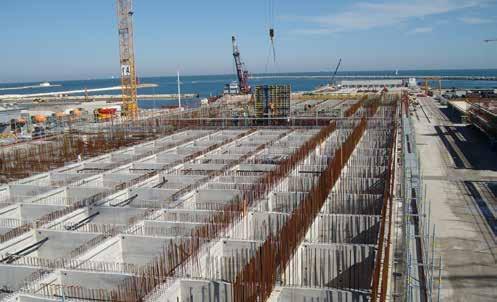
Venice Malamocco harbour pass. Construction of the structures forming the foundations of the MO.S.E system that was conceived to protect Venice from sealevel rise.The four barriers are now completed.
Business integrity
GRI
GRI
Anticompetitive behaviour 2016
Economic performance
GRI 103: General approach 2016
GRI
Circular economy
GRI
GRI Standard Disclosure
Pollutant emissions management and decarbonisation
GRI 103: General approach 2016 GRI 103-1 Explanation of the material topic and its boundary 69
GRI 103-2 The management approach and its components 69-72
GRI 103-3 Evaluation of the management approach 69-72
GRI 305: Emissions 2016 GRI 305-1 Direct (Scope 1) GHG emissions
Employment, health and well-being of workers
GRI 103: General approach 2016 GRI 103-1 Explanation of the material topic and its boundary
GRI 103-2 The management approach and its components
GRI 103-3 Evaluation of the management approach
GRI 401: Employment 2016
GRI 404: Training and education 2016 GRI 404-3 Percentage of employees receiving regular performance and career development reviews
GRI 406: Nondiscrimination 2016 GRI 406-1 Incidents of discrimination and corrective actions taken
Occupational safety
GRI 103: General approach 2016 GRI 103-1 Explanation of the material topic and its boundary
GRI 103-2 The management approach and its components 82-87
GRI 103-3 Evaluation of the management approach 82-87
GRI 403: Occupational Health and Safety 2018 GRI 403-1 Occupational health and safety management system 83-84
GRI 403-2 Hazard identification, risk assessment and incident investigation 83-84
GRI 403-3 Occupational health services
GRI 403-4 Worker participation, consultation and communication on occupational health and safety
GRI 403-5 Worker training on occupational health and safety 85
GRI 403-6 Promotion of worker health 83-84
GRI 403-7 Prevention and mitigation of occupational health and safety impacts directly linked by business relationships 83-84
GRI 403-9 Work-related injuries
Care for local communities
GRI 103: General approach 2016 GRI 103-1 Explanation of the material topic and its boundary 88
GRI 103-2 The management approach and its components 88-89
GRI 103-3 Evaluation of the management approach 88-89
GRI 413: Local communities 2016 GRI 413-1 Operations with local community engagement, impact assessments and development programs 88-89
Sustainable supply chain management
GRI 103: General approach 2016 GRI 103-1 Explanation of the material topic and its boundary 93
GRI 103-2 The management approach and its components 93-96
GRI 103-3 Evaluation of the management approach 93-96
GRI 204: Procurement practices 2016 GRI 204-1 Proportion of spending on local suppliers 96
GRI 308: Supplier environmental assessment 2016 GRI 308-1 New suppliers that were screened using environmental criteria 95-96
Product quality and customer satisfaction
GRI 103: General approach 2016 GRI 103-1 Explanation of the material topic and its boundary 97
GRI 103-2 The management approach and its components 97-103
GRI 103-3 Evaluation of the management approach 97-103
GRI 416: Customer health and safety 2016 GRI 416-2 Incidents of non-compliance concerning the health and safety impacts of products and services 100
GRI 417-1: Marketing and labelling 2016 GRI 417-2 Incidents of non-compliance concerning product and service information and labelling 100
GRI 102-56

To the Board of Directors of Alfa Acciai SpA
We have been engaged to undertake a limited assurance engagement on the Sustainability Report of the Alfa Acciai Group (Alfa Acciai SpA and the companies Acciaierie di Sicilia SpA, Tecnofil SpA, Ferro Berica Srl. e Alfa Derivati Srl. are considered as a whole for the purposes of this Repor t, hereinafter also the “Group”) for the year ended 31st December 2020
Responsibilities of the Directors for the Sustainability Report
The Directors of Alfa Acciai SpA are responsible for the preparation of the Sustainability Report in accordance with the “Global Reporting Initiative Sustainability Reporting Standards ” issued by GRIGlobal Reporting Initiative (the “GRI Standards”) in 2016 (and updated in 2018,2019 and 2020), as illustrated in the “Methodological note” section of the S ustainability Report
The Directors are also responsible for such internal control as they determine is necessary to enable the preparation of a Sustainability Report that is free from material misstatement, whether due to fraud or error.
The Directors are also responsible for defining the sustainability performance targets of the Alfa Acciai Group, as well as for identifying its stakeholders and material topics to be reported on .
Auditor’s Independence and Quality Control
We have complied with the independence and other ethical requirements of the Code of Ethics for Professional Accountants issued by the International Ethics Standards Board for Accountants , which is founded on fundamental principles of integrity, objectivity, professiona l competence and due care, confidentiality and professional behaviour .
Our firm applies International Standard on Quality Control 1 (ISQC Italia 1) and accordingly maintains a comprehensive system of quality control including documented policies and proce dures regarding compliance with ethical requirements, professional standards and applicable legal and regulatory requirements


Our responsibility is to express a conclusion, based on the procedures performed , on whether the Sustainability Report complies with the requirements of the GRI Standards. We conducted our work in accordance with “International Standard on Assurance Engagements ISAE 3000 (Revised)Assurance Engagements other than Audits or Reviews of Historical Information” (hereinafter also “ISAE 3000 Revised”) issued by the International Auditing and Assurance Standards Board (IAASB) for limited assurance engagements That standard requires that we plan and perform procedures to obtain limited assura nce about whether the Sustainability Report is free from material misstatement
The work performed was less in scope than in a reasonable assurance engagement conducted in accordance with ISAE 3000 Revised and, consequently, we did not obtain assurance th at we became aware of all significant facts and circumstances that might be identified i n a reasonable assurance engagement.
The procedures performed on the Sustainability Report were based on our professional judgement and included inquiries, primarily of personnel of the Company responsible for the preparation of the information presented in the Sustainability Report , inspection of documents, recalculations and other procedures designed to obtain evidence considered useful
In detail, we performed the following procedures:
1) we analysed the process of definition of the material topics reported on in the Sustainability Report , with reference to the method of their identifica tion in terms of priority for the various categories of stakeholders and to the internal validation of the results of the process;
2) we obtained an understanding of the processes underlying the generation, collection and management of significant qualitative and quantitative information included in the Sustainability Report In detail, we inquired of and discussed with management personnel of Alfa Acciai SpA and we carried out limited analyses of documentary evidence, in order to obtain information about the processes and procedures supporting the collection, aggregation, processing and submission of non-financial information to the corporate function in charge of the preparation of the Sustainability Report
Furthermore, for significant information , taking into account the activities and characteristics of the Group:
- at the level of Alfa Acciai SpA
a) with reference to the qualitative information presented in the Sustainability Report, we carried out interviews and obtained supporting documents to verify its consistency with available evidence;
b) with reference to quantitative information , we performed both analytical procedures and limited tests to verify, on a sample basis, the accuracy of data aggregation

- for the following entities Acciaierie di Sicilia SpA, Tecnofil SpA, Ferro Berica Srl e Alfa Derivati Srl we obtained documentary evidence, on a sample basis, about the correct application of the procedures and calculation methods a pplied for the indicators
Conclusion
Based on the work performed, nothing has come to our attention that causes us to believe that the Sustainability Report of Alfa Acciai Group for the year ended 31 December 2020 is not prepared, in all material respects, in accordance with the requirements of the GRI Standards as illustrated in the “Methodological note ” section of the Sustainability Report
Other Matters
No assurance procedures were performed on the comparativ e information present ed in the Sustainability Report in relation to the year ended 31 December 2019
Brescia , 1 December 2021 PricewaterhouseCoopers Business Services Srl
Signed by Paolo Bersani (Partner)
This report has been translated from the Italian original solely for the convenience of international readers. We have not performed any controls on the Sustainability Report 2020 translation.
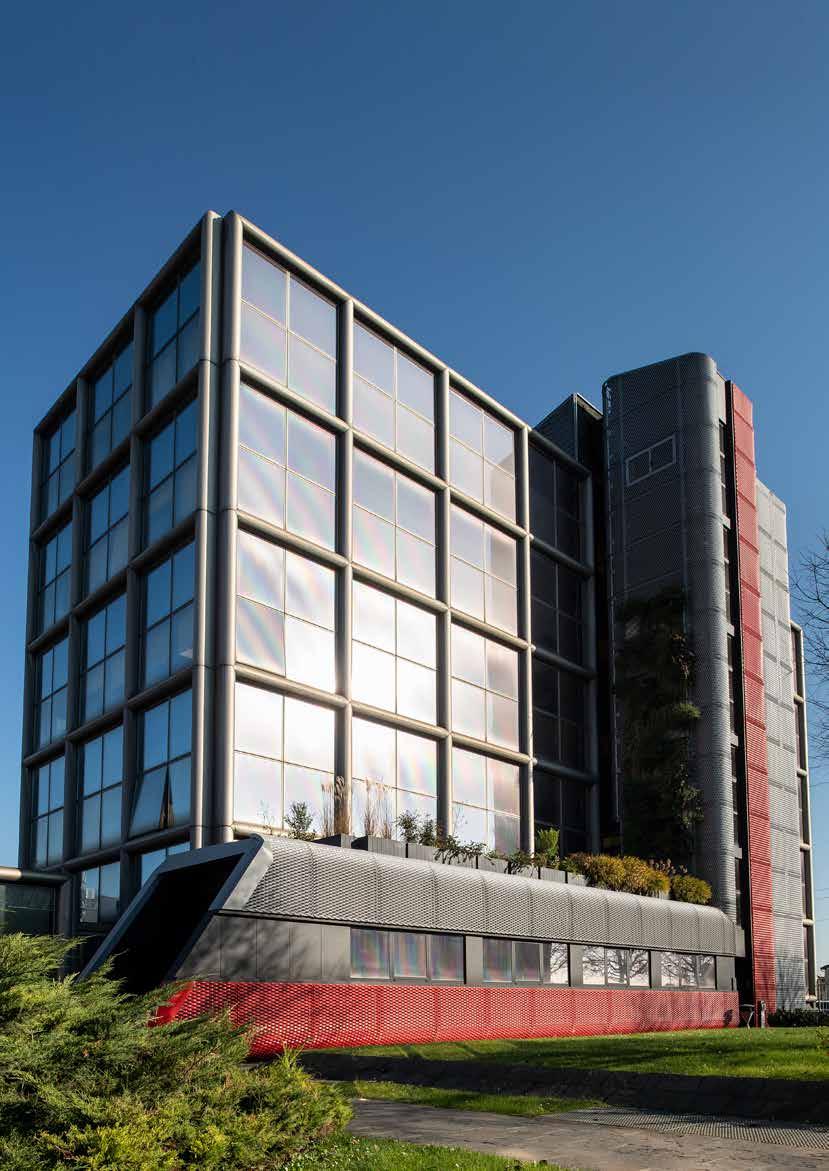
ALFA ACCIAI SpA
ALFA DERIVATI Srl
Via San Polo, 152 25134 Brescia (BS) - Italy
Ph. +39 030.23911 info@alfaacciai.it
ACCIAIERIE DI SICILIA SpA
Stradale Passo Cavaliere, 1/a 95121 Catania (CT) - Italy
Ph. +39 095.7487811 info@acciaieriedisicilia.it
FERRO BERICA Srl
Via Dell’Edilizia, 22 36100 Vicenza (VI) - Italy
Ph. +39 0444.391500 info@ferroberica.it
TECNOFIL SpA
Via Brescia, 49
25023 Gottolengo (BS) - Italy
Ph. +39 030.9517655 info@tecnofil.net
For more information on Sustainability Reporting, log on to infobds@alfaacciai.it
© 2021 Alfa Acciai. All rights reserved. Concept and graphic design: Studio Baronio (BS) Printed in December 2021 on Shiro Echo 100% recycled, biodegradable, eco-friendly paper.

